

University Admission Application Letter (with Samples & PDFs)
I have listed sample templates to help you craft an effective and professional university admission application letter.
Successful Application Letter for University Admission
First, find the sample template for university admission application letter below.
Respected Sir/Madam,
I, [Your Full Name], resident of [Your Address], am writing this letter to show my keen interest in applying for the [Name of the Course] at your esteemed university for the academic year [Year].
I am particularly drawn to the [Name of the Course] at [Name of the University] because of its reputation for providing high-quality education and its focus on practical learning. I am confident that this course will help me achieve my academic and career goals.
Thank you for considering my application. I am eager to hear from you soon.
Below I have listed 5 different sample applications for “university admission application letter” that you will certainly find useful for specific scenarios:
Crafting a Persuasive University Application Letter to Showcase Leadership Skills

To, The Admissions Committee, [University Name], [University Address].
Subject: Application for Admission to [Desired Course Name]
I have consistently excelled in my studies, but more importantly, I have taken the initiative to lead and guide my peers through various activities. As the Head Boy/Girl of my school, I’ve learned to inspire and motivate my fellow students, organize events, and address issues efficiently. These experiences have honed my leadership abilities and have taught me how to balance my academic commitments with extracurricular responsibilities.
I played a pivotal role in initiating a ‘Clean Campus Drive’ in my school, where I led a team of students to maintain cleanliness and fostered a sense of responsibility among them. This initiative not only improved the school environment but also instilled a sense of community and teamwork among the students.
If given the opportunity to join [University Name], I assure you that I will bring these leadership qualities to contribute positively to the university community. I am eager to leverage my experiences to participate actively in student-led initiatives and further develop my leadership skills.
Yours Sincerely, [Your Full Name], [Your Contact Information].
Writing a Compelling University Application Letter Highlighting Athletic Achievements

To, The Admissions Committee, [Name of the University], [Address of the University]
Subject: Application for Admission and Highlighting Athletic Achievements
I hope this letter finds you in the best of health and spirits. I am [Your Name], a student from [Your School Name], [Your City], intending to apply for the [Course Name] at your esteemed university.
Academically, I have consistently performed well, securing a GPA of [Your GPA] in the previous year. However, I am not just a diligent student in the classroom, but also a passionate sportsperson. I believe my athletic achievements will contribute to the vibrant sports culture at your university.
My commitment to sports has not only honed my physical abilities but has also helped me develop leadership skills, team spirit, and resilience. I believe that these qualities will not only aid me in my academic pursuit but also contribute to the overall diversity and vitality of your university’s student community.
I am enthusiastic about bringing the same dedication and spirit to your esteemed university and contributing to its athletic teams. I am certain that the comprehensive education and diverse opportunities provided by your university will help me grow, both acadically and athletically.
Articulating Academic Excellence in a University Admission Application Letter

The Dean of Admissions, [University Name], [University Address], [City], [State], [Pin Code]
Subject: Application for Admission
I have always been passionate about [subject(s) related to the course], and I am confident that my academic achievements reflect this. I have consistently maintained a high academic standing in my schooling years, ranking in the top [percentage/rank] of my class. My teachers have commended me for my dedication and commitment to learning, which is evident from my grades and participation in various academic competitions.
Moreover, I have been an active participant in various extracurricular activities that have helped me develop a holistic understanding of the world. I have led [mention some leadership roles], worked on [mention any projects or initiatives], and engaged in [mention any community service or volunteer work]. These experiences have taught me the importance of teamwork, leadership, and responsibility, and have fuelled my desire to further my learning.
I am committed to maintaining my academic excellence and contributing positively to the university community. I am hopeful that I will be given the opportunity to bring my passion, dedication, and academic prowess to your esteemed institution.
Thank you for considering my application. I look forward to the possibility of contributing to and learning from the [University Name] community.
Tailoring a University Application Letter to Highlight Community Service Experiences

I hope this letter finds you in good health. I am [Your Name], a student of [Your School Name], seeking admission to your esteemed university for the upcoming academic year.
I am writing this letter to express my keen interest in the [Course Name] program at your prestigious institution. I have always been intrigued by [Subject Name], and I am eager to explore this field under the guidance of the accomplished faculty at [University Name].
In addition, I volunteered in the ‘Joy of Giving’ initiative, aimed at providing essential supplies to underprivileged children. This experience truly humbled me and made me realize the value of giving back to society. I believe these experiences have shaped me as an individual and have taught me the importance of empathy, teamwork, and leadership.
I am certain that these experiences will enable me to contribute to the diverse community at [University Name]. I am eager to bring my commitment to service and dedication to learning to your campus, and I look forward to the possibility of contributing my skills and experiences to your distinguished institution.
[Your Name] [Your Contact Information]
Penning a University Application Letter Expressing a Deep Passion for a Specific Field of Study

Subject: Application for Admission in [Specific Field of Study]
I, [Your Full Name], a resident of [Your City Name], am writing this letter to express my deep interest in applying for the [Specific Field of Study] program at your esteemed university for the academic year [Year of Admission].
My passion for [Specific Field of Study] was kindled during my school years, when I found myself fascinated by [Mention something specific about the field that fascinated you]. Since then, my curiosity and interest in this field have only grown. I have spent countless hours learning and honing my skills, and now I aspire to take this passion forward and delve deeper into this field at a university level.
I have consistently excelled in this field during my school years [mention any achievements, awards, or recognition received]. I am confident that my dedication, coupled with the guidance of the exceptional faculty at [University Name], will equip me with the necessary skills and knowledge to contribute positively to this field.
I assure you of my utmost commitment and dedication towards my studies, and I am eager to make the most of the opportunities offered at your prestigious institution. I am hopeful that you will consider my application favorably.
[Your Full Name] [Your Contact Information]
How to Write University Admission Application Letter
Related Topics:
I am sure you will get some insights from here on how to write “university admission application letter”. And to help further, you can also download all the above application samples as PDFs by clicking here .
Leave a Reply Cancel reply
Save my name, email, and website in this browser for the next time I comment.

College Application Letters: Cover Letters & Letters of Continued Interest
College application letters.
College application cover letters support your college applications, college resume, and college application essay prompts. In combination with the other elements of your college applications, particularly your college entrance essay, college application letters help establish your “why.” In short, a college application letter is a cover letter for your college applications that describes your background, skills, and interest in the school. When looking at college application cover letter examples, pay attention to the values that they express. College application letters and college entrance essays are similar in that they are exercises in personal branding. When reading college application cover letter examples, pay attention to the messages they convey.
If you’re wondering how to write a college application letter, CollegeAdvisor.com has advisors who can walk you through every part of the process. If your goal is to get into top colleges, CollegeAdvisor.com can help. We’ll analyze examples of college application letters and discuss the letter of continued interest to help you craft successful applications.
In this guide, we’ll break down the different kinds of college application letters you may encounter when completing your college applications. We’ll discuss the college application letter and the letter of continued interest, as well as teacher recommendation letters.
If you want to read college application cover letter samples, you’ve come to the right place!
What is a college application letter?
To learn how to write a college application letter, you must first understand its purpose. Do this by checking out college application cover letter examples. College application letters and college resumes serve as introductions for your college applications. Unlike college application essay prompts, there are no specific questions to answer in your cover letter. Instead, include the essential elements of university application letters: your background, what makes you unique, and your reasons for wanting to attend that particular college. In short, what makes you, you .
As you’ll see when reading example college application letters, college application cover letters are not all that different from what you would write in a cover letter when applying for a job or graduate school. The purpose of college application cover letters, college entrance essays, and college resumes is to persuade colleges that you are the strongest candidate for admissions.
College application cover letters are not the time to be shy, but they’re not the time to be pretentious either. When reading college application cover letter examples, you’ll see that there’s a fine line. Your tone matters. In your university application letters, show your experiences and accomplishments while portraying character traits that colleges value. To get into top colleges, find a balance between being proud of your accomplishments and being humble.
College application letters – Who requires them?
Unlike college entrance essays, college application letters are required by very few colleges. However, the skills you’ll develop by writing university application letters will serve you well as you approach your college application essay prompts. When researching college application examples, you’ll notice that there are optional materials to submit. If you’re serious about your college applications, submit university application letters to show your interest.
College application cover letters are particularly effective if the college does not have college application essay prompts that ask you to explain why you want to attend the school and/or why you want to study your major. They are even more strongly recommended when applying to colleges that don’t have any supplemental essays. You’ll see many college application cover letter examples that focus primarily on academics, but you can include so much more.
Though university application letters are rarely required, they provide an ideal way to introduce yourself. After all, you’ll notice when reading college application cover letter samples that the goal is to help the admissions committee get to know you as a person. You are more than just your grades and scores.
If you want to get into top colleges that don’t allow you to submit a college resume or don’t provide interviews, you need to take extra steps to earn acceptance. Often, you can repurpose content from college application essay prompts that ask why you want to study your major! The college application essay format differs from that of a college application letter, but they serve a very similar purpose.
Test your knowledge about other aspects of the college admissions process in our quiz below!
What is a letter of continued interest?
A letter of continued interest (LOCI) is a letter you send to a college when you are deferred or placed on the waitlist. So, not everyone will need to write a college application letter of continued interest.
Your letter of continued interest has three primary goals:
- Reaffirm your interest in the school.
- Provide additional context for your application.
- Discuss accomplishments on your college resume that have occurred since you submitted your application.
In this guide on how to write a college application letter, we discuss all forms of college application letters in detail. We’ll expand on the above goals to explain the strategies for writing effective letters.
Explaining teacher recommendation letters
In addition to submitting a college application cover letter and, potentially, a letter of continued interest, your application will also include recommendation letters . These letters enhance your college application entrance essay and build on answers to supplemental college application essay prompts.
Due to the shift away from standardized testing, other parts of your college applications are inevitably getting more attention in the evaluation process. When assessing your college applications, admissions committees will often rely on letters from your teachers and counselor in place of interviews.
When reading sample college application letters of recommendation, you’ll observe that some are better than others. But, it can be a bit harder to find example teacher recommendations than it is to find college application cover letter examples. To ensure high-quality letters, create a plan well in advance of your senior year. You’ll want to ask teachers to write your recommendations who know you best beyond your grades. The strongest sample college application letters of recommendation speak to both your personal and academic strengths.
College application sample recommendation letters with the biggest impact typically come from teachers from your core junior year courses – math, science, English, and social studies. If there’s a teacher from your junior year who taught you during your sophomore or senior year too, even better! Teachers who know you through multiple environments – clubs, classes, sports, or other areas – can often do the best job speaking to your growth and achievement over time.
Choose teachers who know you best
Ultimately, the most effective sample college application letters of recommendation are written by the teachers who know you best. Pay attention to the college application requirements for each school on your list. Note when reading example college application letters of recommendation who the intended audience is. Some schools require math or science teachers for STEM and business majors , while others require English or social studies teachers for humanities majors .
For example, when looking at college application sample requirements, MIT writes “One recommendation should be from a math or science teacher, and one should be from a humanities, social science, or language teacher.” Caltech also requires one math or science teacher evaluation and one humanities or social sciences teacher evaluation.
Some applicants are tempted to send more letters than the college applications require. However, aim for quality over quantity. If you want to ask another teacher to write a recommendation letter for you, ask yourself what perspective they will bring to your college applications that isn’t already covered in your college entrance essay or other recommendation letters.
Don’t hesitate to provide materials to help your teachers and guidance counselor write their letters of recommendation for you. In fact, you should! When reading college application sample letters of recommendation, you’ll note that they are specific and provide examples where possible. Some teachers will even have you fill out a standard form to gather information from you. So, by having additional information already prepared, you are helping them tremendously.
Here are some materials you can provide to help your recommendations augment your college applications:
- College entrance essay
- College resume or a list of your extracurricular activities and awards
- Responses to college application essay prompts.
- A sample college application letter that you’re sending to one of your colleges.
- A few paragraphs about why you want to study your major or pursue your intended career.
- Key elements of the course you took with them, such as a favorite project or unit.
When preparing materials to give to teachers, read the instructions given to recommenders by MIT. Even if you aren’t applying to MIT, the information can still be helpful to know. By understanding the process of writing recommendation letters on the teacher’s side, you can see what information will help them write a strong letter for you.
Don’t wait until you’re submitting your college applications to ask your teachers for recommendations. Some teachers limit the number that they will write, and you want them to have plenty of time to write a quality recommendation. To make sure you have the best recommendations , ask teachers late in your junior year or early in your senior year.
The College Application Letter
As we’ve mentioned, a college application letter is a cover letter for your college applications. It describes your background, skills, and interest in the school. It’s different from both the college application essay format and the letter of continued interest. When reviewing college application samples, you’ll see that your cover letter works together with your college resume and college entrance essay to help admissions officers get to know you.
Below, we’ll discuss how to write a college application letter and walk through a sample college application letter. But remember, you want your letter to be original! Don’t feel limited by what’s in any examples of college application letters.
Do all schools require a college application letter?
No — few schools actually require college application letters. However, learning to write a strong college application letter can help you in other aspects of the college admissions process. Reading college application cover letter examples can also help you learn how to write for the admissions committee audience.
One of the ways to learn how to write a college application letter is to read sample college application letters. For instance, the same skills that help you write a strong and concise college application letter will help you in the college essay format, too.
The college application letter – What should I include?
So, you know the purpose of college application letters, but what should you include in them? Reading college application cover letter samples can help you determine this. While the college application essay format lends itself to focusing on one topic or story, college application cover letter examples highlight the importance of covering several different topics.
College application letters should contain the following elements:
1. school name and address.
You college application letter should follow formal letter formatting guidelines, which include writing the full name of the college or university you are applying to in the upper left hand corner of the letter. Try to be as specific as possible with the address you choose to use.
2. Salutation
A standard salutation is suitable for your college application letter. However, it is a great idea to do your research and use the full name of the admissions officer assigned to your region.
3. Introduction
The best examples of college application letters open strong. Thank the admissions committee for reviewing your application, and introduce yourself. Do you have a unique connection to the school? Can you hook the reader in some way to make them want to keep reading?
4. Explanation of academic interests
Your primary purpose in college is to earn a degree, so notice that in example college application letters most of the space is often devoted to discussing academic plans. Include your intended major and career path, as well as interdisciplinary interests.
5. Discussion of extracurricular interests
The college application essay format may be a place for you to discuss extracurricular involvement, so use this space to elaborate or discuss additional interests. These could be connected to your academic plans, but they don’t have to be.
6. Conclusion
Express your interest in the school! Impactful example college application letters have a clear and brief conclusion that reaffirms your desire to attend and enthusiasm for the opportunity to join the next class of undergraduates. Point to specific classes, professors, programs, organizations, and aspects of the college that pique your interest. No one is going to hold you to your plan, but colleges want to see that you have one.
8. Complimentary Close
Lastly, every good college application letter should include an expression of gratitude alongside your close and your signature.
In the example of a college application letter above, there are a few key details to highlight. The letter is essentially a five-paragraph essay, with one paragraph for each of the five elements. This differs significantly from the college application essay format. In this college application example, the college application letter has clear and distinct sections, and this is very common in college application cover letter samples.
Depending on your interests and plans, you could take a more integrated approach. You’ll read some examples of college application letters that center around a theme or broad plan rather than separated into individual paragraphs.
This sample college application letter is a narrative. The applicant’s goal is to tell her story to the admissions committee. The best sample college application letters paint a picture for the reader and draw the reader into the storyline. Though it can feel like being vivid and descriptive is a waste of your space, “showing instead of telling makes for stronger college applications.
How to format your college application letter?
When reading sample college application letters, you’ll observe that they are formatted very similarly to professional cover letters. Your university application letters should be one page single-spaced. The heading should also be consistent across college application letters.
- Your full address
- The date you will send the letter
- The admission officer’s name
- The college name
- The college address
Then, open your letter with a salutation. Many examples of college application letters open with “Dear” and are addressed to the admission officer. If you cannot find your regional admissions officer, it is fine to address the letter to the admissions office as was done in the sample college application letter above. Once you write the body of your letter, don’t forget your closing salutation – “Sincerely,” and then your name.
Once you read several sample college application letters, you’ll understand the best practices. After writing a university application letter for one school, you don’t need to start from scratch for additional schools. Adapt what you have to fit the next college’s context and your specific interests on their campus.
Being concise is key. Your university application letter should not be redundant. If it exceeds one page, see where information you mention is repeated elsewhere in your application. In your cover letter, focus on the content that makes you as original and unique as possible. Most importantly, don’t forget to proofread your university application letters!
Can a college application letter help me with other parts of my application?
Think of the college application cover letter as the glue that holds your college applications together. When writing it, think about it as your opportunity to show your best self. After brainstorming the content, you’ll be better equipped to craft your candidate profile into a cohesive narrative and articulate why you want to attend the college.
Though many parts of your college applications will be out of your control by the time you reach your senior fall, the college application cover letter is one that you can control. Use it to elevate your college applications, show interest in your top schools , and make yourself stand out among other applicants!
The Letter of Continued Interest
Another form of college application letter is a letter of continued interest . In sample college application letters of continued interest, you’ll see that the primary purpose is to reaffirm your candidacy for a spot in the next incoming class of undergraduates.
Though it can feel like a waiting game, the waitlist should not be passive. As soon as you are waitlisted or deferred, begin crafting a letter of continued interest. The best college application sample LOCIs are submitted promptly. Put in the effort to show you’re serious about attending.
College application example LOCIs should focus on recent updates. Likely, a lot has happened since you submitted your application, particularly if you applied by the early deadlines. Strong college application sample LOCIs convey accomplishments and experiences that either add to previously mentioned ones or provide another dimension to your application.
Letter of continued interest – When and where to submit?
Learn as much as you can by reading college application example LOCIs, but know that each school’s process for when and how to submit them is different. Additionally, the process may vary based on whether you were deferred to the regular decision round of admissions or waitlisted after the regular decision round. It’s important to follow each university’s directions.
Many schools will request that you upload your letter of continued interest to a portal. Some will request that you email it to an address – typically the admissions office. Others won’t allow you to submit any additional materials. If you’re in doubt, call or email the admissions office and ask.
What to include in your letter of continued interest?
You’ll notice common trends when reading college application sample LOCIs. Effective college application example LOCIs convey a tone of sincerity, gratitude, and enthusiasm for an opportunity to attend. A strong sample college application letter of continued interest includes four elements.
First, reaffirm your interest in attending the school if offered the chance to matriculate. Then, discuss relevant developments to your application, such as additional extracurricular accolades and continued academic successes. Sometimes, you’ll see a sample college application letter of continued interest that mentions how a student improved a lower mid-year grade or discusses a new leadership role.
When reading a sample college application letter of continued interest, remember that colleges are looking for reasons to admit you, so don’t be shy! Offer to answer any questions they have and provide additional info in the conclusion of your letter.
It’s important to back up your claims with supporting evidence. Strong college application sample LOCIs provide examples and specific details, just as you would in a cover letter or essay. Be vivid and descriptive as you share your story!
However, college application example LOCIs that include overly emotional appeals or merely complement the university are unlikely to be effective. Your letter of continued interest should be all about you. Though it can be difficult to realize this when reading college application example LOCIs, recognize that the content of your letter should fit within the context of the rest of your application.
The many types of college application letters – Final Thoughts
In this guide, we covered several types of letters associated with your college process – college application cover letters, teacher recommendation letters, and letters of continued interest. Reading sample college application letters, whether they are college application cover letter samples or LOCIs, can help you do your best work. But, remember that every applicant’s college application process is unique.
Our final tips for writing college application letters:
- Proofread. College application letters with typos or grammatical errors reflect poorly on your effort and candidacy. Use a polished and professional tone in everything you write for your college applications.
- Be yourself. Though this goal can get lost in the requirements, scores, and grades, you should focus on helping the colleges on your list get to know who you are .
- Follow the requirements. Each college has their own requirements for how they want you to submit materials. Pay close attention to the details for each college as you go through the admissions process.
CollegeAdvisor.com can help guide you through every step of the college application process. Check out our blog , webinars , or register with CollegeAdvisor.com today. Good luck!
This guide to college application letters and letters of continued interest was written by Caroline Marapese, Notre Dame ‘22. At CollegeAdvisor, we have built our reputation by providing comprehensive information that offers real assistance to students. If you want to get help with your college applications from CollegeAdvisor.com Admissions Experts , click here to schedule a free meeting with one of our Admissions Specialists. During your meeting, our team will discuss your profile and help you find targeted ways to increase your admissions odds at top schools. We’ll also answer any questions and discuss how CollegeAdvisor.com can support you in the college application process.
Personalized and effective college advising for high school students.
- Advisor Application
- Popular Colleges
- Privacy Policy and Cookie Notice
- Student Login
- California Privacy Notice
- Terms and Conditions
- Your Privacy Choices
By using the College Advisor site and/or working with College Advisor, you agree to our updated Terms and Conditions and Privacy Policy , including an arbitration clause that covers any disputes relating to our policies and your use of our products and services.
Writing Cover Letters for University Applications [2023 Guide]
Applying to university can be a daunting experience, especially when it comes to crafting the perfect cover letter for your application. A well-written cover letter can be the deciding factor between getting accepted into your dream program or receiving a rejection letter. In this guide, we will explore the importance of a strong cover letter, its purpose, format, content, and provide tips and examples to help you craft a compelling cover letter for your university application.
A cover letter for a university application is an essential document that can make or break your chances of getting admitted to your dream program. The importance of a strong cover letter in the application process cannot be understated, as it serves to introduce you, showcase your achievements, and demonstrate your passion for the chosen program or course.
In this article, we will cover:
- The purpose of a cover letter for university applications
- The format and structure of a cover letter
- The content and elements of an effective cover letter
- Tips for writing a compelling cover letter
- Common cover letter mistakes to avoid
- Sample cover letters for university applications
By following the advice and guidance provided in this article, you will be well-equipped to create a cover letter that stands out from the competition and increases your chances of admission. So, let's dive in and learn how to craft the perfect cover letter for your university application!
Purpose of a Cover Letter for University Applications
The primary purpose of a cover letter is to introduce the applicant, showcase their achievements, and demonstrate their passion for the chosen program or course. A cover letter complements other application materials, such as your resume and transcripts, by highlighting your unique qualities and strengths that may not be evident in those documents.
An effective cover letter can also demonstrate your motivation and commitment to the program, which can influence the admissions committee's decision. For example, MIT's Career Advising & Professional Development office explains that a well-crafted cover letter can help set you apart from other applicants by providing context and a personal touch to your application.
Format and Structure of a Cover Letter
A proper format and structure are crucial for creating a professional and effective cover letter for a university application. A standard cover letter typically includes:
- Header (with your contact information and the date)
- Salutation (addressing the recipient)
- Introduction (capturing the reader's attention)
- Body (highlighting your qualifications, achievements, and passion)
- Conclusion (leaving a lasting impression)
- Complimentary close (e.g., "Sincerely," followed by your name)
Proper formatting, such as using an appropriate font, font size, and margin settings, is essential for creating a polished and professional appearance. Keep your language clear and concise, and make sure to proofread and edit your letter to ensure it is error-free.
Content and Elements of a Cover Letter
A successful cover letter for a university application should contain specific elements that demonstrate the applicant's qualifications, achievements, and passion for the program. These elements include:
- Addressing the letter to the appropriate recipient
- Crafting an engaging introduction that captures the reader's attention
- Including essential elements in the body of the letter, such as academic interests, extracurricular activities, and relevant experiences
- Writing a compelling conclusion that leaves a lasting impression
Tailoring the content to the specific university or program is crucial, as demonstrated by Seattle Pacific University's Career Services . They advise that telling stories about your skills and experiences that are relevant to the specific program can help make your cover letter more effective.
Tips for Writing an Effective Cover Letter
Following certain tips and best practices can significantly improve the quality and impact of a cover letter for a university application:
- Research the university and program before writing the letter to better understand their values and expectations.
- Showcase your unique qualities and strengths by providing specific examples and details.
- Use strong action verbs and avoid clichés or overused phrases, as suggested by Freesumes .
- Seek feedback from teachers, counselors, or peers to ensure your cover letter is polished and compelling.
- Revise and refine your letter until it accurately represents your passion and qualifications for the program.
Common Cover Letter Mistakes to Avoid
Avoiding common cover letter mistakes is essential for creating a strong and effective university application:
- Address the letter to the correct recipient to show your attention to detail and professionalism.
- Avoid using generic or overly broad language, which can make your letter less impactful.
- Submit a well-formatted and professional-looking letter to convey your seriousness and commitment.
- Refrain from including irrelevant or excessive information that distracts from your main strengths.
- Proofread and edit your letter to eliminate typos, grammatical errors, and other mistakes that can undermine its impact.
Sample Cover Letters for University Applications
Examining sample cover letters can provide valuable insights and inspiration for crafting a successful university application. We recommend:
- Analyzing high-quality sample cover letters for various university programs or courses
- Identifying the strengths and weaknesses of each sample
- Adapting the samples to your specific situation and application
- Using the samples as a starting point for creating your unique cover letter
- Remembering to tailor your letter to the specific university or program
With proper research, planning, and execution, a well-crafted cover letter can significantly enhance a university application and increase the chances of admission. By applying the tips and guidance provided in this article, you will be well-prepared to create a compelling cover letter that showcases your passion, achievements, and qualifications for your dream program.
As a final piece of advice, remember that persistence and dedication are key to success in the university application process. Keep refining your cover letter and learning from feedback until you have a polished and impactful document that truly represents you. Good luck on your university application journey!

How to write a Motivation Letter for University (Sample)
| is usually a straightforward process. Yet, aspiring students must be extra careful in every step and do the required paperwork correctly and meticulously, especially when they are expected to provide additional material, which they must write themselves. For example, most educational institutions expect candidates to submit more than just basic information about their achievements, degrees, grades and . Not to make it harder for them, but out of a necessity that seems inevitable. Evaluating numerous applicants with similar qualifications is a laborious process. So, universities ask potential students to differentiate themselves in some way. That's usually done by providing their honest, personal take on why they should be admitted and demonstrating their drive to excel in their studies. That's called a , and if written well, it could be the decisive factor in an applicant's admission. A motivation letter is a brief (usually one-page long) letter to the selection committee. In it, candidates have to present their and demonstrate within its system. In a few words, universities want aspiring members of their student body to be more than confident of their choice and fully motivated to make the most out of this opportunity. Of course, putting it into words is not enough. Applicants have to support their statements with valid arguments, exhibit a deep understanding of their preferred institution, and show they have a plan for their future. Submitting a good CV is the first step to drawing attention to your application. But matching your list of qualifications to your personality, dreams, and aspirations makes you stand out in the eyes of your evaluators. As mentioned above, university officials often have to go through several CVs that may not have distinct differences (especially when applicants are fresh out of high school). So, there aren't enough grounds for picking one over the others. That is when a can separate you from the lot by persuading the committee of your conviction, work ethic, and desire to succeed. In a way, writing a motivation letter is like standing in front of your evaluators and telling them confidently that you would be a perfect fit for their institution because: Now, imagine every candidate did just that. Then, for your presentation to make a difference, you’d have to: Let’s see how you can do that in written form with a motivation letter. Writing a near-perfect motivation letter is critical to a university candidate's success, so it cannot be taken lightly. It's not just a matter of finding a nice , filling in your information, and calling it a day, neither a secondary task to postpone until the last minute. In many cases, your is your application’s most . That's why you must start writing it the moment you decide which program to apply to. And you must make it as distinct as possible without diverging from the general guidelines and best practices. If you're considering applying to a university in Germany, make sure to check out our specialized ! Before we continue our guide on how to write a good motivation letter, here's some to keep in mind beforehand. Are you considering pursuing your studies in the UK? Discover the in the country. First and foremost, a motivation letter is meant to be read. Therefore, it must be brief, simple, polite, and . If you want your point to be heard loud and clear, then your motivation letter must be reader-friendly and concise. Starting from the structure, you must keep it and easy to navigate from section to section. For example, your motivation letter could consist of just: As for the , it depends on what the letter of motivation is for. More specifically, a letter for a bachelor's degree is different from a motivation letter for a master's or a PhD. That's because there are other criteria for admission to a post-graduate program and a broader academic background for the candidate to present for evaluation. To give you a point of reference, here's a for applying to a bachelor's program: *Dear Sir or Madam, With this letter, I would like to express my interest in studying for a bachelor's in X at the University of X. I chose this program because it matches my academic strengths in my final years at X High School. During that time, I showed particular interest and excelled in X, Y, and Z, getting my highest marks and many praises from my teachers. A few months before graduating, I researched all possible academic paths based on my strongest subjects and eventually decided to study X. My subsequent research into the available X programs led me to apply to the institution you represent. My decision was finalized after learning more about the University of X and its educational approach, campus life, internship programs, and post-graduate options. I gave it a lot of thought, and I believe it's the best environment for me to study what I'm passionate about and enjoy a rewarding academic and social life on the way. I especially look forward to participating in the various educational and recreational activities and becoming part of the U of X culture and community. Also, I'm confident that the University of X has an excellent system for supporting my future plans. Whether I decide to continue my studies or start my career, I found there are many research-oriented courses and diverse internship opportunities to help me prepare for succeeding in my next endeavor. To me, this degree is the beginning of a long journey, and I'm eager to make it the basis for building a fruitful life and career. Thank you for considering my application. I look forward to your positive response. Yours faithfully, The above motivation letter includes some for drawing positive attention to your candidacy. Feel free to add your own or make the tone and style a bit more personal. Just remember to always keep the final draft lean and readable. When applying to a university, you cannot rely on your CV alone, no matter how bulked up it is. Since you don't know who you're competing against, you simply have to give your best at everything that is required of you. The motivation letter is an excellent medium for and making a solid case for getting their thumbs up. That's why you have to put in the extra work and be sure to: What do you say? Do you feel ready to write a great and get into the university of your dreams with flying colors? |
| Category: | |
| Share: |
College Admission Letter Example: Free & Effective
In this article, I will share a step-by-step process with personal insights and a customizable template to begin your journey.
Key Takeaways
- Understand the Purpose : Recognize that your letter is more than just an application; it’s a narrative of your academic journey, achievements, and the unique qualities you bring to the university.
- Be Authentic : Authenticity resonates. Share real-life examples that highlight your strengths, resilience, and character.
- Structure is Key : A well-structured letter includes an introduction, body paragraphs detailing achievements and experiences, and a conclusion that reaffirms your interest in the program.
- Customize Your Letter : Tailor your letter to each college by mentioning specific programs, professors, or opportunities that excite you about attending.
- Proofread and Revise : Ensuring your letter is free from errors is crucial. Seek feedback and make revisions to polish your narrative.
- Free Template : Start with a template but personalize it to reflect your genuine interest and enthusiasm for the college and program.
Step 1: Start with a Strong Introduction
Your opening sentence sets the tone for your entire letter. Begin by introducing yourself and expressing your enthusiastic interest in the college and the specific program you are applying to.
Mention what draws you to the institution and how you believe it aligns with your academic goals and career aspirations.
Example Introduction : “I am thrilled to submit my application for the [Program Name] at [College Name]. The innovative curriculum and the college’s commitment to [specific aspect, like ‘community service’ or ‘research excellence’] resonate deeply with my academic interests and personal values.”
Step 2: Highlight Your Academic and Personal Achievements
In this section, delve into your academic journey, significant achievements, and the challenges you’ve overcome. Emphasize any unique experiences that have shaped your perspective and prepared you for college. This could include leadership roles, community service, internships, or special projects.
- List of Achievements : Include awards, recognitions, or notable projects.
- Personal Growth : Share experiences that demonstrate resilience, leadership, and personal growth.
- Relevance : Connect your experiences to how they’ve prepared you for the program you’re applying to.
Step 3: Explain Why You’ve Chosen This College
Trending now: find out why.
This is where your research about the college pays off. Discuss specific aspects of the college or program that excite you. Mention any professors whose work you admire, the unique opportunities the college offers, and how these align with your academic and career goals.
- Program Specifics : Courses, professors, or research opportunities that attract you.
- College Culture : Aspects of the college’s culture or values that resonate with you.
- Career Goals : How the program aligns with your career aspirations.
Step 4: Conclude with Confidence
Your concluding paragraph should reiterate your excitement and readiness for the college experience. Affirm your belief that the college is the ideal place for you to achieve your academic and professional goals. Express your eagerness to contribute to the college community.
Example Conclusion : “I am eager to bring my passion for [your field of interest], along with my dedication to [specific contribution, like ‘community service’ or ‘academic research’], to [College Name].
I am confident that [College Name] is the perfect environment for me to thrive academically and personally, and I look forward to the opportunity to contribute to your vibrant community.”
Tips from Personal Experience
- Be Yourself : Authenticity cannot be overstated. Admission officers are adept at distinguishing genuine narratives from embellished ones.
- Customization Is Key : A generic letter won’t stand out. Customize your letter for each application to reflect your genuine interest in the program and college.
- Seek Feedback : Before submitting, have someone review your letter. Fresh eyes can catch errors and offer valuable perspective.
- Follow Instructions : Adhere to any specific guidelines provided by the college. This demonstrates attention to detail and respect for the application process.
College Application Letter Sample
[Your Name] [Your Address] [City, State, Zip] [Email Address] [Phone Number] [Date]
[Admissions Office] [College Name] [College Address] [City, State, Zip]
Dear Admissions Committee,
[Introduction: Introduce yourself and express your interest in the specific program and college.]
[Body Paragraph 1: Highlight your academic achievements and any relevant experiences.]
[Body Paragraph 2: Discuss specific aspects of the college or program that appeal to you and how they align with your goals.]
[Conclusion: Reiterate your excitement about the opportunity to attend and your belief in the fit between your aspirations and the college’s offerings.]
[Your Name]
I invite you to share your thoughts and questions in the comments section below. Whether you’re embarking on writing your own admission letter or refining an existing draft, I’m here to offer guidance and support. What challenges are you facing in your writing process? Let’s start a conversation to navigate this journey together.
Frequently Asked Questions (FAQs)

Q: What is a College Application Letter?
Answer : A College Application Letter is a document that a student submits to a college or university as part of their application for admission. The letter typically provides information about the student’s academic background, extracurricular activities, personal qualities, and other factors that make them a good candidate for admission.
Q: What should be included in a College Application Letter?
Answer : A College Application Letter should include the student’s name, contact information, and the name of the college or university they are applying to.
It should also provide information about the student’s academic background, including their GPA, test scores, and any relevant coursework or academic achievements.
Additionally, the letter should highlight the student’s extracurricular activities, personal qualities, and other factors that make them a good candidate for admission.
Q: How long should a College Application Letter be?
Answer : The length of a College Application Letter can vary, but it is generally recommended that the letter be no longer than one page. The letter should be concise, well-organized, and easy to read.
Q: What is the purpose of a College Application Letter?
Answer : The purpose of a College Application Letter is to provide the college or university with information about the student that is not included in other parts of the application, such as transcripts and test scores.
The letter is an opportunity for the student to showcase their personality, interests, and achievements, and to demonstrate why they would be a good fit for the college or university.
Q: How important is a College Application Letter in the admissions process?
Answer : A College Application Letter can be an important factor in the admissions process, as it provides the college or university with additional information about the student that is not included in other parts of the application.
The letter can help the student stand out from other applicants and demonstrate why they would be a good fit for the college or university. However, the weight placed on the letter can vary depending on the specific college or university and their admissions process
Related Articles
Sample letter of withdrawal of enrollment: free & effective, school transfer letter sample: free & effective, letter of withdrawal from college due to personal problems: free & effective, appeal letter for university rejection sample: free & effective, assignment extension request letter example: free & effective, sample letter of interest for university admission: free & effective, leave a comment cancel reply.
Your email address will not be published. Required fields are marked *
Start typing and press enter to search
Tips for Writing an Effective Application Essay
Find the right college for you.
Writing an essay for college admission gives you a chance to use your authentic voice and show your personality. It's an excellent opportunity to personalize your application beyond your academic credentials, and a well-written essay can have a positive influence come decision time.
Want to know how to draft an essay for your college application ? Here are some tips to keep in mind when writing.
Tips for Essay Writing
A typical college application essay, also known as a personal statement, is 400-600 words. Although that may seem short, writing about yourself can be challenging. It's not something you want to rush or put off at the last moment. Think of it as a critical piece of the application process. Follow these tips to write an impactful essay that can work in your favor.
1. Start Early.
Few people write well under pressure. Try to complete your first draft a few weeks before you have to turn it in. Many advisers recommend starting as early as the summer before your senior year in high school. That way, you have ample time to think about the prompt and craft the best personal statement possible.
You don't have to work on your essay every day, but you'll want to give yourself time to revise and edit. You may discover that you want to change your topic or think of a better way to frame it. Either way, the sooner you start, the better.
2. Understand the Prompt and Instructions.
Before you begin the writing process, take time to understand what the college wants from you. The worst thing you can do is skim through the instructions and submit a piece that doesn't even fit the bare minimum requirements or address the essay topic. Look at the prompt, consider the required word count, and note any unique details each school wants.
3. Create a Strong Opener.
Students seeking help for their application essays often have trouble getting things started. It's a challenging writing process. Finding the right words to start can be the hardest part.
Spending more time working on your opener is always a good idea. The opening sentence sets the stage for the rest of your piece. The introductory paragraph is what piques the interest of the reader, and it can immediately set your essay apart from the others.
4. Stay on Topic.
One of the most important things to remember is to keep to the essay topic. If you're applying to 10 or more colleges, it's easy to veer off course with so many application essays.
A common mistake many students make is trying to fit previously written essays into the mold of another college's requirements. This seems like a time-saving way to avoid writing new pieces entirely, but it often backfires. The result is usually a final piece that's generic, unfocused, or confusing. Always write a new essay for every application, no matter how long it takes.
5. Think About Your Response.
Don't try to guess what the admissions officials want to read. Your essay will be easier to write─and more exciting to read─if you’re genuinely enthusiastic about your subject. Here’s an example: If all your friends are writing application essays about covid-19, it may be a good idea to avoid that topic, unless during the pandemic you had a vivid, life-changing experience you're burning to share. Whatever topic you choose, avoid canned responses. Be creative.
6. Focus on You.
Essay prompts typically give you plenty of latitude, but panel members expect you to focus on a subject that is personal (although not overly intimate) and particular to you. Admissions counselors say the best essays help them learn something about the candidate that they would never know from reading the rest of the application.
7. Stay True to Your Voice.
Use your usual vocabulary. Avoid fancy language you wouldn't use in real life. Imagine yourself reading this essay aloud to a classroom full of people who have never met you. Keep a confident tone. Be wary of words and phrases that undercut that tone.
8. Be Specific and Factual.
Capitalize on real-life experiences. Your essay may give you the time and space to explain why a particular achievement meant so much to you. But resist the urge to exaggerate and embellish. Admissions counselors read thousands of essays each year. They can easily spot a fake.
9. Edit and Proofread.
When you finish the final draft, run it through the spell checker on your computer. Then don’t read your essay for a few days. You'll be more apt to spot typos and awkward grammar when you reread it. After that, ask a teacher, parent, or college student (preferably an English or communications major) to give it a quick read. While you're at it, double-check your word count.
Writing essays for college admission can be daunting, but it doesn't have to be. A well-crafted essay could be the deciding factor─in your favor. Keep these tips in mind, and you'll have no problem creating memorable pieces for every application.
What is the format of a college application essay?
Generally, essays for college admission follow a simple format that includes an opening paragraph, a lengthier body section, and a closing paragraph. You don't need to include a title, which will only take up extra space. Keep in mind that the exact format can vary from one college application to the next. Read the instructions and prompt for more guidance.
Most online applications will include a text box for your essay. If you're attaching it as a document, however, be sure to use a standard, 12-point font and use 1.5-spaced or double-spaced lines, unless the application specifies different font and spacing.
How do you start an essay?
The goal here is to use an attention grabber. Think of it as a way to reel the reader in and interest an admissions officer in what you have to say. There's no trick on how to start a college application essay. The best way you can approach this task is to flex your creative muscles and think outside the box.
You can start with openers such as relevant quotes, exciting anecdotes, or questions. Either way, the first sentence should be unique and intrigue the reader.
What should an essay include?
Every application essay you write should include details about yourself and past experiences. It's another opportunity to make yourself look like a fantastic applicant. Leverage your experiences. Tell a riveting story that fulfills the prompt.
What shouldn’t be included in an essay?
When writing a college application essay, it's usually best to avoid overly personal details and controversial topics. Although these topics might make for an intriguing essay, they can be tricky to express well. If you’re unsure if a topic is appropriate for your essay, check with your school counselor. An essay for college admission shouldn't include a list of achievements or academic accolades either. Your essay isn’t meant to be a rehashing of information the admissions panel can find elsewhere in your application.
How can you make your essay personal and interesting?
The best way to make your essay interesting is to write about something genuinely important to you. That could be an experience that changed your life or a valuable lesson that had an enormous impact on you. Whatever the case, speak from the heart, and be honest.
Is it OK to discuss mental health in an essay?
Mental health struggles can create challenges you must overcome during your education and could be an opportunity for you to show how you’ve handled challenges and overcome obstacles. If you’re considering writing your essay for college admission on this topic, consider talking to your school counselor or with an English teacher on how to frame the essay.
Related Articles

How to Write Motivation Letter for University with Examples
Table of Contents
University applications can be stressful and daunting, but one of the most important parts of the process is writing a motivation letter that stands out from the rest. A motivation letter is a crucial part of your application that can make or break your chances of getting accepted. It gives you the opportunity to showcase your personality, skills, and passion for the subject you are applying for. Crafting a perfect motivation letter that can impress the admission committee can be challenging, but with the right guidance, you can create a letter that will put you ahead of the competition. In this blog post, we’ll provide you with some tips and tricks on how to write an impressive motivation letter that will help you achieve your goals and get accepted into your dream university.
Purpose of a Motivation Letter:
A motivation letter serves as a crucial component of your university application, offering you the opportunity to showcase your personality, aspirations, and suitability for the program you are applying to. It goes beyond listing your achievements and qualifications, providing the admissions committee with insight into your character, interests, and goals. The purpose of a motivation letter is to convey your passion for the subject you wish to study, your reasons for choosing the specific university or program, and how your background and experiences have prepared you for success in your academic pursuits. It allows you to demonstrate your communication skills, critical thinking abilities, and commitment to furthering your education.
Researching the University and Program Requirements:
Before diving into crafting your motivation letter for university, it is crucial to thoroughly research the specific requirements of the university and program you are applying to. Each educational institution has its own unique values, goals, and academic standards that they look for in prospective students. Start by exploring the university’s official website to gather information about their mission statement, academic programs, faculty members, research opportunities, and any special initiatives they may have. Understanding the university’s educational philosophy and culture will help you tailor your motivation letter to demonstrate how you align with their values and goals. Additionally, delve into the specific requirements of the program you are applying to. Pay close attention to the course curriculum, research areas, and any specific skills or qualities they are seeking in applicants. Highlighting how your academic background, skills, and personal experiences align with the program’s requirements will make your motivation letter stand out. By conducting thorough research on the university and program requirements, you will be able to customize your motivation letter to showcase your genuine interest in the institution and demonstrate why you are a strong candidate for admission.
Structuring Your Motivation Letter Effectively:
Structuring your motivation letter effectively is crucial in making a strong impression on the admissions committee. Begin by introducing yourself and stating the purpose of the letter clearly. Share your enthusiasm for the program and explain why you are passionate about pursuing studies in that particular field. In the body of the letter, highlight your relevant experiences, skills, and achievements that make you a strong candidate. Use specific examples to demonstrate your qualifications and showcase your unique strengths. Make sure to align these experiences with the program’s requirements and emphasize how they have prepared you for success in the chosen field of study. In the closing paragraph, reiterate your interest in the program and express your gratitude for the opportunity to apply. End on a positive note, emphasizing your enthusiasm for contributing to the academic community and your commitment to academic and personal growth. Remember to proofread your motivation letter carefully to ensure it is well-structured, error-free, and effectively conveys your motivation and qualifications to the admissions committee. A well-structured motivation letter will set you apart from other applicants and increase your chances of success in the university application process.
Crafting a Compelling Opening Paragraph:
Crafting a compelling opening paragraph is crucial when writing a motivation letter for university. This is your opportunity to grab the reader’s attention and make a strong first impression. Start with a hook that immediately captures the reader’s interest and highlights your passion for the field of study you are applying for. Consider sharing a personal anecdote, a thought-provoking quote, or a brief but impactful story that illustrates your motivation and dedication. Additionally, clearly state your purpose for writing the letter and express your enthusiasm for the university and program you are applying to. Show that you have done your research and understand why this particular institution is the perfect fit for your academic and career goals. By setting a positive and engaging tone from the very beginning, you will draw the reader in and set the stage for a compelling and persuasive motivation letter.
Highlighting Your Achievements and Qualifications:
Demonstrating your passion and interest in the field of study:.
When crafting a motivation letter for university, one of the key elements to focus on is demonstrating your passion and interest in the field of study. Admissions officers are looking for candidates who are genuinely enthusiastic about the subject they wish to pursue. Begin by sharing personal anecdotes or experiences that have shaped your interest in the field. Whether it’s a childhood fascination, a transformative moment, or a recent discovery, highlighting the roots of your passion can make your motivation letter more compelling and authentic. Moreover, it’s essential to showcase your knowledge of the field. Discuss any relevant coursework, projects, or extracurricular activities that have deepened your understanding and commitment to the subject. Demonstrating that you have taken proactive steps to engage with the field beyond the classroom can set you apart as a dedicated and motivated applicant. Lastly, don’t forget to tie your passion back to your future goals and aspirations. Explain how pursuing this field of study aligns with your long-term career objectives and personal growth. By illustrating a clear connection between your passion, academic pursuits, and future plans, you can convey a sense of purpose and determination that resonates with admissions committees.
Personalizing Your Motivation Letter for Each University:
Personalizing your motivation letter for each university is a crucial step in crafting a compelling application. Admissions officers can easily spot a generic, one-size-fits-all motivation letter, which may not make a lasting impression. By tailoring your letter to each specific university, you demonstrate genuine interest and a strong commitment to your application. Start by conducting thorough research on each university’s programs, faculty, campus culture, and values. Highlight specific aspects of the university that resonate with your personal and academic goals. Incorporate details such as professors whose research aligns with your interests, unique opportunities the university offers, or specific courses that excite you. Additionally, address why you are specifically drawn to that university over others. Share anecdotes or experiences that showcase your connection to the institution and how you envision yourself contributing to the academic community. Demonstrating a deep understanding of the university’s ethos and illustrating how you can contribute to its vibrancy can set your motivation letter apart.
Showcasing Your Unique Qualities and Experiences:
When crafting your motivation letter for university, it’s crucial to showcase your unique qualities and experiences. This is your opportunity to stand out from other applicants and make a lasting impression on the admissions committee. One effective way to highlight your uniqueness is to focus on specific experiences, skills, or personal qualities that set you apart. Share stories that demonstrate your passion, resilience, creativity, or leadership abilities. Use concrete examples to showcase how these qualities have shaped your academic and personal journey.
Additionally, emphasize any relevant achievements, extracurricular activities, or volunteer work that reflect your character and commitment to your chosen field of study. By painting a vivid picture of who you are and what drives you, you can make a compelling case for why you are a perfect fit for the university and the program you are applying to.
Remember, the goal is not just to list your accomplishments, but to weave them into a narrative that conveys your authentic self and your aspirations for the future. This personal touch will help your motivation letter resonate with the admissions committee and increase your chances of securing a spot at the university of your dreams.
Concluding With a Strong and Memorable Ending:
The conclusion of your motivation letter is your final opportunity to leave a lasting impression on the reader. Therefore, it is crucial to craft a strong and memorable ending that reinforces your enthusiasm, passion, and suitability for the academic program. In this section, you should succinctly summarize your key points, reiterating your interest in the program and highlighting your unique qualifications and experiences. Emphasize how your background aligns with the program’s objectives and how you can contribute to the academic community. Additionally, consider expressing gratitude for the opportunity to apply and convey your excitement at the prospect of furthering your education at the university. A positive and optimistic tone can leave a favorable impression on the admissions committee, showcasing your professionalism and dedication to your academic pursuits. End your motivation letter with a powerful closing statement that leaves a lasting impact. Whether it’s a thought-provoking quote, a personal reflection, or a confident declaration of your readiness to excel in the program, make sure it resonates with the reader and reinforces your commitment to achieving academic success. By concluding your motivation letter with a strong and memorable ending, you can ensure that your application stands out and leaves a lasting impression on the admissions committee.
Editing and Proofreading Your Motivation Letter:
Editing and proofreading your motivation letter is a critical step in ensuring its effectiveness. After you have poured your thoughts and experiences onto the page, it’s time to refine your message and ensure it is polished to perfection.
Final Tips for Writing an Impressive Motivation Letter:
When it comes to crafting an impressive motivation letter for university, the final tips can make all the difference in showcasing your unique qualities and aspirations. Firstly, ensure that your letter is personalized and tailored to the specific university and program you are applying to. Generic letters can often be spotted a mile away and may not make a lasting impression on the admissions committee. Secondly, be sure to highlight your passion and genuine interest in the field of study. Admissions officers are looking for candidates who are enthusiastic about their chosen subject and can demonstrate a clear motivation for pursuing further education in that area. Moreover, it is crucial to showcase your relevant experiences, skills, and achievements that set you apart from other applicants. Provide specific examples that illustrate your capabilities and how they align with the program’s objectives and requirements. Lastly, remember to proofread your motivation letter carefully to ensure there are no errors in grammar, spelling, or punctuation. A well-written and polished letter demonstrates your attention to detail and professionalism, which can leave a positive impression on the admissions committee. By incorporating these final tips into your motivation letter, you can enhance its overall impact and increase your chances of standing out as a strong candidate for admission to the university of your choice.
Below Are the Some Examples:
Having a keen interest in [Field of Study], as demonstrated by my academic achievements and involvement in extracurricular activities, I have diligently endeavored to establish a firm base of knowledge in this discipline. In addition, I have participated in internships, research programs, and community initiatives to acquire practical experience and advance my comprehension of how [Field of Study] impacts real-world challenges.. I am confident that the [Name of Program] program can provide me with an opportunity to enhance my skills and knowledge in [Field of Study]. The program’s curriculum is designed to foster interdisciplinary education, which I am excited to explore. Additionally, the program’s emphasis on experiential learning appeals to me as it can allow me to apply my theoretical knowledge to practical situations.
I’ve participated in various extracurricular activities alongside my academics, which have helped me develop my interpersonal, communication, and leadership skills. I’m confident that these skills will come in handy as I become a part of the vibrant and close-knit community at [Name of University]. Thank you for your consideration of my application. I am confident that the [Name of Program] program at [Name of University] will allow me to achieve my academic and personal goals, and I am excited at the prospect of joining the vibrant and diverse community of learners at [Name of University]. Sincerely, [Name]
I am confident that [Name of University] is the right fit for me to achieve my academic and personal objectives. The University’s dedication to academic excellence, engagement, and diversity resonates with my values and ambitions. What appeals to me the most is the program’s interdisciplinary curriculum, which allows me to delve into the overlap of [Field of Study] with other disciplines and gain a holistic understanding of how to tackle practical challenges.
I look forward to contributing my unique blend of skills and experiences to the vibrant and diverse community of [Name of University]. I am excited about the opportunity to work with world-class scholars and to engage in stimulating in-class discussions and out-of-classroom activities. I firmly believe that [Name of Program] program will enable me to achieve my academic and personal goals, and I am thrilled at the prospect of joining the community of passionate learners at [Name of University]. Sincerely, [Name]
Dear Sir/Madam, I am writing to express my desire to pursue [Degree] in [Field of Study] at [Name of University]. I have completed my undergraduate studies in [Subject Area] and am eager to explore [Field of Study] further through the [Name of Program] program. After careful consideration, I have concluded that [Name of University] aligns with my academic and personal aspirations. I am impressed by the University’s reputation for academic excellence, research innovation, and active involvement in research. The interdisciplinary approach to learning and customizable curriculum offered by the program is particularly attractive to me as they can help me to achieve my specific academic and personal goals.
My academic preparation, combined with a range of practical experiences, has equipped me with the necessary knowledge and skills to excel in [Field of Study]. Through internships, volunteer work, and leadership roles, I have honed my analytical, organizational, and problem-solving skills, which I believe will be essential for success in this program. I am looking forward to engaging with a diverse and dynamic community of learners at [Name of University]. The [Name of Program] program aligns with my career aspirations of becoming a leading expert in [Field of Study]. I am excited to apply my skills, knowledge, and expertise to contribute to the academic excellence of [Name of University]. Thank you for your consideration of my application to the [Name of Program] program at [Name of University]. I look forward to the opportunity to join the community of passionate learners at [Name of University]. Sincerely, [Name]
Dear Admissions Officer, I am excited to submit my application for the Master’s program in [Field of Study] at [Name of University]. After careful research and consideration, I believe this program aligns well with my academic and professional objectives. I am confident that [Name of University] offers a top-quality education and research opportunities that will enable me to excel in my chosen field. I recently graduated with an undergraduate degree in [Field of Study], and I feel like my academic journey has equipped me with robust analytical and research skills. However, I’m not content with just what I’ve learned so far. I want to explore the different facets of [Field of Study] more profoundly and gain a better understanding of the subject through innovative research. The curriculum of the [Name of Program] program has caught my attention. It offers a well-balanced combination of basic and advanced courses that will equip me with the essential skills to progress in my career. I am also excited about the chance to work with renowned professionals and researchers in [Field of Study], which inspires me greatly. Over the years, I have gained valuable skills and experiences that I believe would benefit me greatly in the program. Through my academic pursuits, leadership roles and community involvement, I have developed strong interpersonal and communication skills that are crucial for success in research and building meaningful professional relationships. I am confident that my wide range of abilities would allow me to thrive in the program, bring value to the academic community, and make a positive difference. I am excited and eager to immerse myself in the program, work with dedicated faculty and peers, and engage in new and innovative research across different fields of study. I am confident that the [Name of Program] program at [Name of University] can facilitate my intellectual growth, professional development, and personal aspirations. Thank you for considering my application, and I look forward to the opportunity of joining the [Name of University] community of passionate learners. Sincerely, [Name]
Conclusion:
In conclusion, the significance of a well-crafted motivation letter cannot be overstated. It serves as a powerful tool for students to showcase their unique strengths, aspirations, and passion for their chosen field of study. A compelling motivation letter has the potential to set you apart from other applicants and leave a lasting impression on the admissions committee. By investing time and effort into writing a personalized and impactful motivation letter, you demonstrate your commitment, dedication, and enthusiasm for your academic pursuits. This document allows you to convey your story, goals, and reasons why you are a perfect fit for the university or program you are applying to. Ultimately, a well-written motivation letter can open doors to new opportunities, academic excellence, and personal growth. It is a reflection of your character, values, and potential contributions to the academic community. Therefore, approach the crafting of your motivation letter with care, attention to detail, and a genuine desire to make a positive impact. Your motivation letter is your voice – let it resonate with authenticity and conviction as you embark on your journey towards academic success.
Guide to Writing a Sample Welcome Letter to Parents from Teacher
You might also like, 25 fresh daycare review examples, improve your student bio writing with our expert examples.
WTO / Applications / Free College Admission Application Letter Templates
Free College Admission Application Letter Templates
A college admissions application letter is a formal letter that an aspiring student submits to a college along with other pertinent documents to get admission into that college.
Given that the college receives numerous applications, your letter is the perfect opportunity to explain what makes you stand out from other applicants. The application letter works as a tool to enhance your admissions process and speed up your chances of joining your dream institution. Your letter should capture important and specific details about why you are a perfect fit for the particular school.
It should outline the strengths you possess both as a young person and as a student. This means highlighting notable accomplishments, including achievements in a co-curricular activity, if you think you could benefit the school from that perspective. Practically, some schools can pick you because they believe you can earn them immense recognition due to your athletic prowess.
Your letter is significant as it solidifies your entire admissions application. It can boost your chance of securing a place at your dream college. This is because the personal information you provide, such as former leadership positions and exceptional academic excellence, can potentially portray you as a stronger applicant as compared to other applicants.
Free Templates
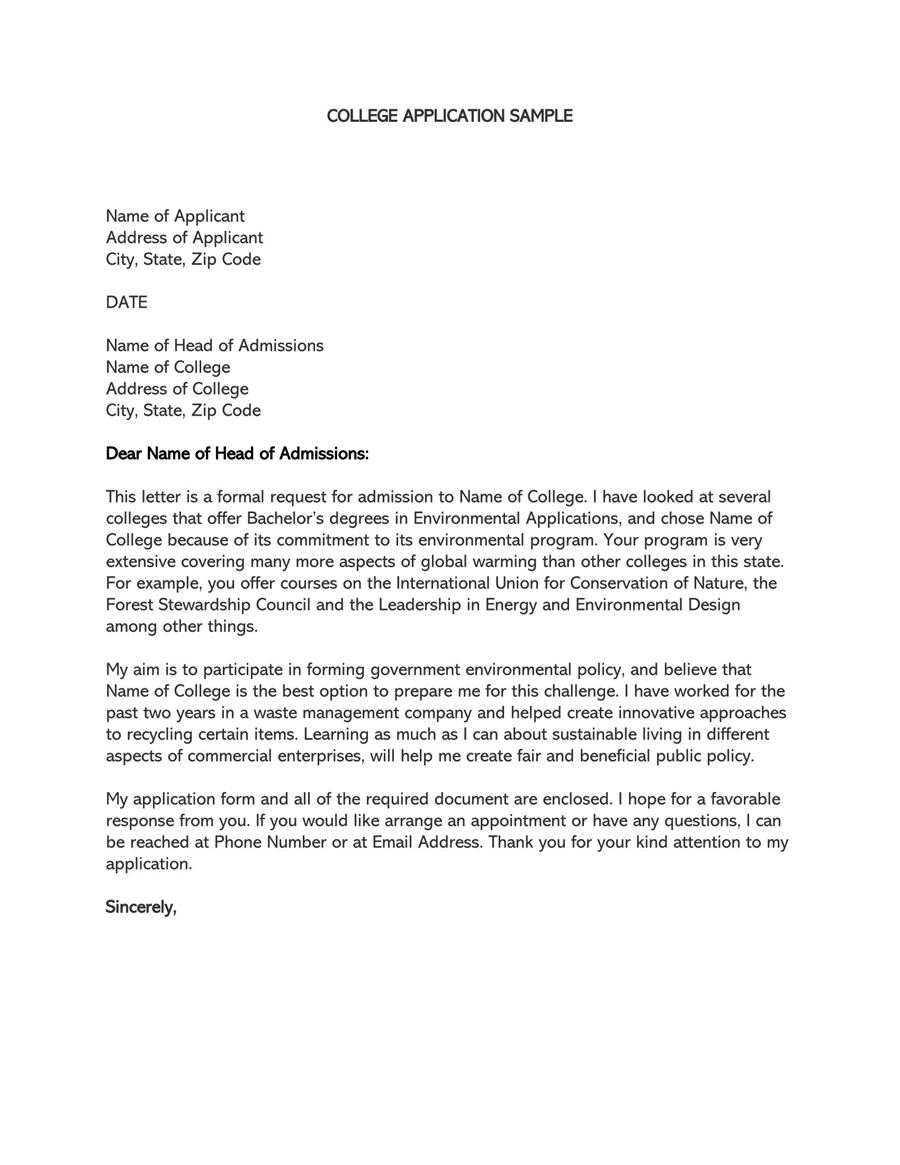
Writing a College Admission Application Letter
With the huge number of admissions applications your dream college receives, your letter should be well-written and capture the most unique qualities that could give you an edge over other applicants.
The following is the ultimate guide for writing a professional letter, assuming you have already taken your time to conduct enough research:
Write down your personal information
Identify yourself at the beginning of your admissions letter. This means writing down your full name and address. Use the conventionally accepted address format, whereby you indicate the street address, state, city, and zip code. This way, the admissions officers reading your letter will have an idea of who you are as they proceed to read your letter.
Include the date
After writing your name and address, indicate the date of sending the letter. Use a professional format, such as “November 15, 20xx.” Keep in mind that using a casual format could compromise the professionalism of your letter.
Write details of the college
Address the letter by using the standard, formal format as shown below. Remember to address the admission officer as discovered earlier during your research.
Name of admission officer, Name of college Street address City, state, zip code
Include a salutation
The admissions application letter is a formal correspondence, which means you must address the reader formally and try to avoid adding some sort of language such as To whom it may concern, Hi, Hello, or Good Morning. The best approach is to use the full name of the admission officer. If you do not know the name of the officer assigned to your region, conduct some research.
Dear Mr. White,
State your intent for applying to the school
State the reason for writing the letter and express your genuine interest in the program you are applying for. Indicate the program you would like to pursue and explain why you want to study at that institution. Think about the school’s unique qualities that set it apart from other colleges.
Give reasons why you are applying to their college
Now this is the opportunity to offer a personalised explanation about why you want to join their college. In one or two paragraphs, explain how this institution can contribute to driving your career goals and dreams forward. Be sure to relate how the distinctive strengths of the college could help shape your future. For instance, if you are a football player and the institution runs a nationally strong football team, let this be one of your major points.
Write a conclusion
When it comes to finalizing the letter, express your interest without getting too demanding or needy and conclude it with a positive tone. Inform the administration that you have submitted all required documents and that you are available to provide any other additional information or clarifications. Conclude by thanking the admission officers for sparing time to review your application and expressing your keenness to receive a positive response.
Include a sign-off
Sign your letter with a formal sign-off and add your full name.
College Admission Application Letter Template
[Your Name]
[Your Address]
[City, State, Zip Code]
[Your Email Address]
[Your Phone Number]
[Admissions Office]
[College or University Name]
[College or University Address]
Dear Admissions Committee,
I am honored to submit my application for the [specific program or degree] at [College or University Name] for the upcoming [semester or year]. My high school journey has been characterized by a commitment to academic excellence, a passion for [relevant academic field or extracurricular activity], and a dedication to personal growth and development. It is with great anticipation that I seek to bring my enthusiasm and dedication to an institution that champions [broad values or principles, such as academic integrity, innovation, or community].
During my time at [Your High School Name], I have engaged deeply with [specific subjects or activities], which has not only enriched my understanding but also sharpened my desire to explore these areas further in a collegiate setting. My academic achievements include maintaining a GPA of [Your GPA] while actively participating in [extracurricular activities or clubs], highlighting my ability to balance rigorous coursework with extracurricular commitments.
My involvement in [specific projects or community service] has taught me [key lessons or skills], reinforcing my belief in the importance of [value or principle relevant to the college’s ethos]. These experiences have shaped my worldview and fueled my ambition to contribute to a vibrant academic community.
Enclosed with this letter, you will find my application form, high school transcripts, [any other required documents], and letters of recommendation. I am prepared to provide any further information needed to support my application.
As I envision my future at [College or University Name], I am excited about the prospect of joining a community that embraces [aspect of the college’s mission or values]. I am eager to engage with the diverse and dynamic student body, participate in [specific programs or activities offered by the college], and contribute to the campus community through my passion for [your field of interest or a particular activity].
Thank you for considering my application. I am enthusiastic about the opportunity to learn, grow, and contribute to the esteemed community at [College or University Name]. I look forward to the possibility of discussing my application with you further.
Sample College Application Letter
I am writing to express my enthusiastic application for admission to the Bachelor of Science in Environmental Science program at Dream University for the Fall semester of 20XX. My passion for environmental stewardship, combined with my academic achievements and community involvement, has prepared me for the rigorous and rewarding path that Dream University offers.
Throughout my high school career at Green Valley High, I have maintained a cumulative GPA of 3.8, demonstrating my commitment to academic excellence. My coursework in biology, chemistry, and environmental studies has not only strengthened my scientific foundation but has also ignited my interest in sustainable environmental solutions. I was honored to receive the Green Innovator Award in my junior year for leading a community project that successfully implemented a local recycling program, reducing waste by 30% in its first year.
In addition to my academic pursuits, I have actively participated in the Environmental Club, serving as its president in my senior year. Under my leadership, we launched a school-wide initiative to reduce energy consumption, which included installing energy-efficient lighting and promoting a carpooling system among students and faculty. These experiences have taught me the importance of leadership, teamwork, and community engagement in addressing environmental challenges.
Dream University’s reputation for excellence in environmental science, coupled with its commitment to sustainability, aligns perfectly with my academic interests and career aspirations. The opportunity to work with faculty members who are at the forefront of environmental research and to have access to state-of-the-art facilities is incredibly exciting to me. I am particularly drawn to the hands-on research opportunities and internships that Dream University offers, which I believe are essential for applying theoretical knowledge to real-world environmental issues.
Enclosed with this letter, you will find my application form, high school transcripts, SAT scores, letters of recommendation, and a personal essay that further details my passion for environmental science. I am confident that my background and aspirations make me a well-suited candidate for the Environmental Science program at Dream University.
Thank you for considering my application. I am eager to contribute to and learn from the vibrant academic community at Dream University. I look forward to the opportunity to further discuss my application and how I can contribute to the university’s mission of fostering environmental innovation and sustainability.
Elena Rodriguez
Key Takeaways
The application letter for admission to the Bachelor of Science in Environmental Science program effectively presents the candidate’s qualifications and enthusiasm for the university. Here’s why it’s an effective sample:
Personalized Introduction: The applicant addresses the admissions committee directly, establishing a personal connection and demonstrating genuine interest in the program.
Academic and Extracurricular Achievements: The letter highlights the candidate’s strong academic record and relevant coursework, showcasing their preparedness for the program. Their leadership roles and community involvement in environmental initiatives demonstrate a well-rounded skill set beyond academics.
Alignment with University Values: The applicant thoroughly researched the university’s program and emphasizes how its reputation and values resonate with their academic interests and career goals. This alignment with the university’s mission enhances the candidate’s suitability for admission.
Supporting Documentation: Mentioning the inclusion of required documents with the letter shows the candidate’s organization and attention to detail, providing a complete application package.
Enthusiastic Conclusion: The letter closes with a strong expression of gratitude and eagerness to contribute to the university’s academic community, leaving a positive impression on the admissions committee.
Overall, this application letter effectively communicates the candidate’s qualifications, passion for environmental science, and suitability for the program, making it a strong sample for aspiring applicants.
Admission Application Letter Writing Tips
Given the high level of competition for limited slots, you can increase your chances of joining the college by writing an outstanding letter. From conducting research to ensuring timely submission of the letter, here are key tips to help write an excellent letter:
Research and self-reflect
Visit the college’s website and try to find some of the qualities they prefer in students. Also, you can talk to someone who has attended the school before you. Using the information you gain from your research, tailor your letter in a way that shows that the school’s mission and vision statement correlate with you as a character and as a future professional.
Emphasize your uniqueness
The uniqueness of students is a key factor, so you should try to mention your abilities and skills that make you the most suitable applicant for the college. For instance, you may want to explain how you are an exceptional player if that means something to the particular college you are writing to.
Be concise and to the point
Colleges receive numerous applications and spend a lot of time going through them. In this context, avoid writing an unnecessarily long letter. Instead, make it brief and to the point. One way to maintain the acceptable and recommended length is to only write the information you think is essential. Also, avoid repeating details that are already covered in your documents.
Be specific
Colleges love to pick students who write to them with genuine intentions. For this reason, let the administration know that you believe it is only their college that can offer the best quality education and college life that you want to explore. Think about the specific reason that built your interest in the college and capitalize on it. This could be anything, from nationwide recognition in a game that you play to an excellent ranking for your program of interest.
Make sure to go through your admissions application letter several times to correct any grammatical and spelling mistakes. Ensure that your letter has good readability so that the reader can see your professionalism and attention to detail. If it helps, have a friend go through your letter to see what they feel about it. While polishing your letter, keep in mind that submitting a letter containing careless mistakes could ruin your chance of securing a life-changing opportunity.
Submit the letter before the deadline
Colleges tend to be strict on timeliness to ensure the smooth flow of their selection procedures. Many colleges do not even consider going through admissions applications sent in late. In this context, be sure to follow up on the dates announced by your preferred institution to ensure that your letter reaches them before time runs out.
Final Words
A well-written admissions application letter can increase your chances of joining the institution of your dreams. Remember that a good writing process starts with adequate research. When writing the letter, be keen to capture how the school’s culture, mission, vision, and strengths relate well with your qualities and strengths as a student. Write about your achievements in the community and your former schools. Always remember to keep it professional, concise, and one page long. Consider using a customizable template to make sure you have included all the essential information in your application letter.
About This Article

Was this helpful?
Great! Tell us more about your experience
Not up to par help us fix it, keep reading.

10 Free Homeschool Report Card Templates

12 Free Class Schedule Templates

10 Free School Report Card Templates (Editable)

Free Lesson Plan Templates for Teachers (Editable)

Graphics , Personal
Free printable coloring pages for kids (pdf).

Business , Planners
Free test plan templates & examples (word).

Business , Reports
How to write a white paper (20 free templates).

35 Free Course Syllabus Templates (Editable) – Word | PDF

12 Free Kindergarten Newsletter Templates

12 Perfect Examples of Salutatorian Speech

12 Free Yes No Flowchart Templates (PowerPoint)
Thank you for your feedback.
Your Voice, Our Progress. Your feedback matters a lot to us.
Guide On How To Write A Cover Letter For A University
Link Copied
Share on Facebook
Share on Twitter
Share on LinkedIn

Cover It Up
It's the time of year again; you have made a list of your selected colleges and will apply to them. You are about to apply, but one hurdle remains in your path; the dreaded cover letter. Many students still are unsure of how to write a good cover letter for a university. In this blog, we will tell you how to write a great cover letter for a university. We will discuss the basic template, tips, and things to remember while writing a university application letter. So let us not waste any time and dive straight into it.
What is a cover letter for a university, and why is it important?
Many of us thought of this question when we first encountered the need for a cover letter when applying for universities. A cover letter for a university is basically a one-page application that you submit alongside your CV or resume when applying to a university or college. Many universities ask for a cover letter nowadays since it provides the admissions officer with further detail on how your skill set aligns with the university, what you can bring to the institution and why you want a seat. It also shows the admissions officer your passion and suitability for the course. In addition, a university application letter is more personal than a resume and builds a relationship with the officer.
How to write a cover letter for a university?
Since we have discussed why a university application letter is important, let us now see how to write one. The structure and text volume of a cover letter for a university is determined by its five major features. In most circumstances, a university application letter should be no more than one page long and no more than 300 words long. However, those words must be carefully picked and stick to a well-defined structure. The five major features of a cover letter for a university are:
The officer will see the header first, which is precisely where you can wow them. The header is the only place of a university application letter where you can have some design choices instead of the entire letter being in black text boxes. It will help your letter look as good as it reads. The header usually includes your name , occupation , address , phone number and email .
2. Greeting
The greeting line of a university application letter, also known as a salutation, is where you say your greetings. In a university application letter, don't go too inventive. A simple "Hey" is obviously ineffective. Try to learn the name of the individual to whom you should address your university application letter. People enjoy reading their names , demonstrating your attention to detail and interest in this officer, showing that you've gone out of your way to determine who is processing applications!
3. Introduction
The first paragraph of your cover letter for a university introduction should include your prestigious alma mater ( the school or college you have attended ). Another possibility is that you have experience in your field. Lead with your abilities, and aim to produce a paragraph that makes the admissions officer want to keep reading.
Ace your cover letter along with exploring your perfect student accommodation!
Book through amber today!
The heart of your pitch should be in the body of your cover letter for a university. Given the one-page limit, you have a lot of work to perform in a limited time. In this section, you must mention your top qualifications for the course you wish to apply for. Also, attempt to include the name of the university you're applying to and explain why you want to study there. Remind the admissions officer that you aren't merely sending out study applications to random colleges but want to study at this one.
5. Conclusion
A call to action (CTA) should be included at the end of your cover letter for a university, in which you urge that the admissions officers take some action as a result of your letter. You can state you're looking forward to hearing back, that you'd be happy to follow up with a phone call, or that you'd be honoured to be invited to an interview, either in person or remotely. Your desire to receive a response should indicate to the officer that you are serious about attending this university. You don't want to come across as desperate or overconfident, but you want to express your genuine desire.
If you need more in-depth understanding on how to write your cover letter, our ultimate guide to writing a cover letter will surely help you out!

Documents you will need while submitting your university application letter?
You will need to submit a few documents while submitting your cover letter for a university! The documents include the following:
- A CV/Resume
- Previous academic transcripts
- Portfolio (if required)
- A personal statement
You need to submit these basic documents, but it would be best if you verified the required documents on the university site! As you know, you have to submit your CV or resume alongside your cover letter. Many students still face problems while creating a good resume, don't worry; we will show you how to create your first resume !
Tips on writing your cover letter for a university
There are a few tips that can help you make a great cover letter for a university that can wow the admissions officer:
- Try to sound more human in your letter.
- Beware of the cliches almost everyone uses, so you need to think "outside the box" for this one.
- Keep an eye on your tone and ensure it's friendly , professional , and confident , but never arrogant or condescending.
- Keep your cover letter brief ; keep it point to point so the reader doesn't get bored reading it.
- It's a good idea to divide your introduction into the past, present, and future portions to stay organised while talking about yourself.
- Prove everything you say in your cover letter for a university by keeping the tone friendly and not arrogant!
- Don't just list everything you have achieved since it is already in your CV! Try to mention what new things you would achieve!
University application letter format
Your university application letter must say the appropriate things and look the right way. Choose the appropriate layout and design for your cover letter, and don't waste your golden prose on a poorly designed letter that sounds wonderful but looks horrible. You must use a legible font – nothing grand or unusual. You should use a font size of 10 to 12 points, which is large enough to read but not so large that it looks like you're creating a kid's story. Use 1-inch margins on your letter's top, bottom, right, and left sides. You must include a space between paragraphs that are not indented and keep all paragraphs to a decent length.
Things to keep in mind when writing a cover letter for a university
There are a few things to keep when writing your cover letter; these include the likes of spelling mistakes, grammar, poorly designed cover letters and much more. Here are a few things to remember:
- Words are wasted. Irrelevant information, clichés, and fluff will clutter your page with unnecessary language. Use the limited space you have to write in your own words what makes you a good candidate.
- One of the most typical mistakes students make is wasting their cover letter by transforming their resume into paragraph form . This repetition does not help the admissions officer assess your qualifications or persuade them that you are enthusiastic about the chance.
- A solid cover letter might be improved by including facts about the university that you've learnt about. Learn about the university's culture and goals , and tailor your cover letter to reflect how you would be a good fit.
- A cover letter is not the place to give bad information about your qualifications. An interview allows the admissions officer to learn about your weaknesses. Concentrate on your strengths !
These were the ways to create a good cover letter for a university. It will take you a bit of time and practice to perfect your cover letter. Once you submit your application, you might get called upon for a university interview. If the interview is going to scare you, then don't worry our blog about university interview questions will help you run that scare away. If you are going to apply to universities in the Uk, we can help you do exactly that. Our blog on applying to universities in the UK will do that.
Frequently Asked Questions
How long should a university application letter be, how do you end a cover letter for university, does a cover letter for a university improve your chances, can you be too confident in a university application letter, does a university application letter have to be perfect.
Your ideal student home & a flight ticket awaits
Follow us on :

Related Posts

10 Tips On How To Get A First Class Degree


10 Best PR Courses In Australia In 2024: Eligibility And Point System Explained

15 Common Interview Questions and Answers

Planning to Study Abroad ?

Your ideal student accommodation is a few steps away! Please fill in your details below so we can find you a new home!
We have got your response
amber © 2024. All rights reserved.
4.8/5 on Trustpilot
Rated as "Excellent" • 4800+ Reviews by students
Rated as "Excellent" • 4800+ Reviews by Students

How do I Write an Application Letter to Study at a University?

How to Write an Application Letter to Study at a University
University application letters can be intimidating. You may worry that your entire future hinges on your ability to write an effective letter. While your personal essay isn't the only thing that admissions boards consider when deciding who to accept, a well-written application letter may give you an edge in the application process. Your letter may be the closest thing you'll get to an inteview. Make it the best representation of yourself that you possibly can by offering the admissions committee a strong insight into your abilities and contributions as a prospective student at their university.
Review the Application Process
Read the school's application process carefully, which is generally found on the admissions Website. Be certain that you understand any specific essay questions or prompts before you begin, and make sure you understand and follow all of the instructions provided on the application. In addition to a personal statement or letter, you will likely need to send academic transcripts and letters of recommendation. Note and follow application deadlines.
Organize Your Letter
Decide how to organize and focus your letter. A narrative focus is chronological, telling the story of your academic career. Take an analytical approach when describing why you are a good match for the program. Describe why you are interested in your chosen area of study and what interests you about that particular school. Explain how you would be an asset to the school such as seeking leadership roles in student organizations or joining research studies. You may also wish to mention your past participation in programs and your project experience. Lastly, share the contributions you hope to make to your field. Don't attempt to tell your entire life story; stick to the highlights that present you as the best choice for admission, keeping in mind that your audience will have limited time to read your letter. Use that time wisely.
Write a Draft
Write thoughtfullly and coherently. Use clear and concise language. Avoid contractions. Use this as an opportunity to show the university that you possess effective writing skills. Your aim is to standout from other applicants in unique ways. Avoid passive voice, and stay away from clichés and broad reasoning such as, "I want to major in social work so I can help people." Try to answer direct questions in a way that is specific and original to you, not how every other applicant might answer. Use action verbs such as "created," "performed," "competed," in describing your accomplishments and plans. You may also wish to mention and adversity you faced. For example, you might mention maintaining a high GPA while working to pay your tuition at an excellent private high school that your single mother could not afford.
Carefully Edit Final Draft
Make sure the first couple sentences of your letter are interesting and engaging. Revise as necessary to capture the attention of the admissions board. First impressions matter a lot when you are competing with other qualified applicants. Next. slowly read every line of your letter paying close attention to grammar, punctuation and capitalization. Sentences and paragraphs should flow well. Lastly, ask an adult with excellent writing proficiency to proofread your letter. Make any necessary changes and submit your letter well before the deadline, if possible.
Related Articles

Letters of Recommendation for High School Student Scholarship Money

How to Write a Personal Statement to Get Into a University

Admission Tips for the Harvard Divinity School

How to Write a Scholarship Letter

How to Write an Acceptance Letter for School

How to Improve a Resume for Graduate School

How to Write an Acceptance Letter to Graduate School

How to Write College Scholarship Essays
- University of Toronto: Effective Admission Letters
Jean Marie Bauhaus has been writing about a wide range of topics since 2000. Her articles have appeared on a number of popular websites, and she is also the author of two urban fantasy novels. She has a Bachelor of Science in social science from Rogers State University.
How to Write an Application Letter for Admission Into a University
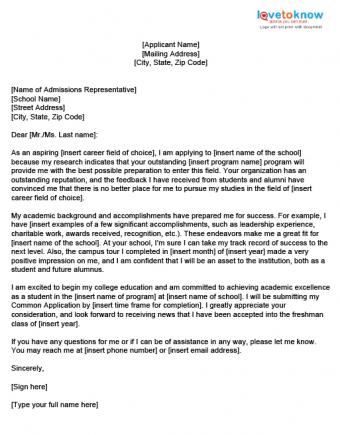
How to Write an Application Letter for Admission Into a University: College reputation and degree is in the palm of your hand. It is a rise or fall of your professional future. It is important that you choose the best college that suits your degree and academic record that you have.
When you write a letter or personal statement as part of applying for graduate or professional school, you make your case as much by the way you write as by what you say. Here are some qualities to aim for.
Table of Contents
Tips for writing an application request letter for admission
Be focussed : Take your cue first from the prompts given in the application form; also research the program widely, looking for hints about its values and identity. What is the main stated question (e.g., why you will be a good researcher or lawyer, what experience you can bring to the program, whether you can stand the pressure)? If the prompt is very general (or lacking), choose an overall point you want to make: that you are a proven achiever, that you thrive on challenges, that you have something special to contribute to the profession. . . . Don’t just write about law or medicine or anthropology: write about yourself as a lawyer, physician or anthropologist.
Be coherent : Being “together” is a quality of writing as well as of character. A clearly organized letter can create a picture of a clear-minded and sensible person. You might want to write from an outline or a diagram of main points. At least check the topic sentences of each paragraph in your finished piece to see if they make a logical sequence. Ask a tough-minded friend to give her impression.
Be interpretive : You need to make an impression concisely, so don’t use your letter just to repeat the facts set out in other parts of the application. Provide explicit answers for the question that arises in the mind of any reader looking at a hundred or more similar documents: “So what?” Use nouns and adjectives that name qualities (outgoing, curiosity, confident) and verbs that show action (coordinated, investigated, tried). Make an effort to find the exact right words to suit the evidence you are offering.
Be specific : There’s no point making claims unless you can back them up. Refer to the fact lists in other parts of your application (“as my academic record shows”), but offer enough examples so that your letter can stand on its own. Say that they are just instances, not your whole proof (“An incident from last summer is an example….”). The concrete language you use for these specific references will also balance the generalizing words of your interpretive points.
Be personal : Your letter substitutes for an interview. In effect, the readers have asked you to tell stories, mention details, expand on facts. So mention things you might not have put into the rest of the application—your ethnic background or political interests, even, if they’re relevant to your academic interests. Don’t be afraid to mention problems or weaknesses if you can show how you overcame them and what you learned from the experience. Use I rather than evasive phrases like “this writer” or “was experienced by me.” A stylistic tip: to avoid monotony, start some sentences with a subordinate clause such as “While I scrubbed floors” or “Because of my difficulties”—then go on to I did or I learned.
Options for Organizing an Admissions Letter
Judge by the clues on the application form and by the nature of the profession or discipline what kind of logical structure you could use to tie your points together into a coherent whole. You may see indications you are expected to demonstrate your personality, or be self-analytical, or enter into discussions in the discipline. You will probably use one or more of these standard expository patterns.
Narrative: A chronological order is easy to organize. It progresses from a beginning to an end, and you can divide up the middle into manageable sections. But beware of overworked openings like “I have always wanted to be a dentist,” and of excessive detail. Select relevant and interesting stories and make sure that the readers know why you are telling them.
Analytic: To deal with the central question why you are a good match for the program, give an overall answer about yourself and then discuss the elements that contribute to your engagement with the discipline. Discuss your interests in terms of key issues and theories in your discipline. To balance the dryness of this approach, break into memorable stories at times, using specific details, and use verbs to put yourself into action. Show what you intend to do after you have completed the program.
Technical: To indicate your research or professional interests, show your involvement with a specific issue. Don’t just outline the topic you want to work on; write about your summer research job or independent-study project, or even your program on student radio or your volunteer experience. Outline specific undergraduate projects as examples. Emphasize what you learned from these activities, and indicate how your studies will extend that learning.
- Common prompts include things like, “Outline your qualifications for this position” or “In writing, explain how this position would affect your career goals.” Sometimes, the prompt will be as short as, “Tell us something interesting about yourself.”
- If there is no prompt, but you still feel the need to introduce your application with a letter, it’s usually best to keep it as short as possible. Explain what you’re applying for, why you’re applying, and thank the contact for their consideration. That’s it.
- Often, college prompts will ask you to describe a time you struggled, or a time you overcame some obstacle. Write about something unique, a time that you actually failed and dealt with the consequences.
- The board will get thousands–literally, thousands–of letters about someone’s first mission trip, and letters about the time someone’s sports team was beaten, then overcame the odds, and won again. Avoid these topics.
- Be specific. If you’re writing to a college board, don’t say, “I want to go to this college because I need a degree.” That’s obvious. What do you want to do with it? Why? If you’re applying to a business, don’t say, “I just need a job.” That’s obvious. Why this specific job?
- Don’t include stuff that’s also on your resume. Your application letter is your one chance in an application to stand out. Listing off the number from your GPA and the boring list of achievements from your resume isn’t the best way to do that. The purpose of the letter is to get a sense of who you are, not a list of accomplishments. Don’t use the letter to describe the list of schools you’ve attended, your GPAs, and a list of extra-curricular activities, unless it relates to some anecdote in the letter. [7]
- If you’re applying to schools, what do you like about the school? What faculty are you interested in? Why this school, instead of another?
- Be sure to explain how you see yourself fitting into the campus—that’s what will really make you an ideal candidate for a school.
Application Request Letter for Admission Templates
When a student identifies a school they would like to enroll, they need to write a request for admission. Check out the application request letter for admission template and sample letters for guidance.
_____________
Date (date on which letter is written)
________________
Sub:_________________________________________
Dear _________________,
I hereby write to express my interest in the ____________ course at your university. I recently completed my degree in ____________ and I believe this course will complement my previous education. Your institution has a good reputation of combining class and practical based learning and this has motivated me to request for admission.
I am a quick learner and determined in my academics, this is evident from the ____________ enclosed herewith for your consideration. Taking this course is the stepping stone to achieve my career plans to work as a ____________. Additionally, I will acquire the knowledge and skills that I can practice in the work environment.
I wish to request the admission form, course details, and the fee structure for the course. Please send me the documents on my email ____________. Please give me an opportunity to pursue this course in your school and I assure you I will do my best.
I will highly appreciate a positive response.
Thank you.
Yours Sincerely,
(__________________)
The applications letter for university admission is one of the important documents that are required when applying for colleges. It should describe the applicant’s reasons for choosing the host school, his background, experiences, interests, and educational goals.
- Resume Templates Simple Professional Modern Creative View all
- Resume Examples Nurse Student Internship Teacher Accountant View all
- Resume Builder
- Cover Letter Templates Simple Professional Modern Creative View all
- Cover Letter Examples Nursing Administrative Assistant Internship Graduate Teacher View all
- Cover Letter Builder
University cover letter example

Cover Letters examples for:
Resumes examples for:.
Most people go to a university to study, but some go to a university to work. Whether you’re an astrophysics professor, a football coach or a food service worker, a compelling university cover letter is a crucial part of your application for any college job.
And these jobs are not exactly scarce. One website that specializes in jobs in academia, HigherEdJobs , says that there are more than 100,000 positions at 2,000 institutes available.
This guide, along with the corresponding cover letter example, will explore:
- The best format of a university cover letter (and its five key elements)
- What to aim for in each section of the cover letter
- The layout and design fundamentals of a cover letter
Psychology tips to writing a great cover letter
- Mistakes you need to avoid.
Best format for a university cover letter
The format of a university cover letter is defined by its five key elements, its structure, and text volume. In most cases, a university cover letter should be one page only, a maximum of 300 words. So unlike a 100,000-word doctoral dissertation, a cover letter prizes brevity and economy of words.
But those words need to be chosen very carefully, and they need to follow a recognized structure.These are the five key elements in the format of a university cover letter:
- Cover letter greeting
- Cover letter introduction
- Middle paragraphs (body)
- Cover letter ending (Conclusion & sign-off)
We will explore what each of these components should contain, but first let’s check out the editable cover letter example you can use for your own application:
Dear Mr. Brawley,
During my seven years as Head of Modern Languages at Northwestern, we saw a 35% uptick in admissions and 25% improvement in overall grades. The oriental studies program was 150% oversubscribed and 95% of all our professors published critically acclaimed research in industry-leading linguistic journals.
Moving to Austin with my family brings opportunities, and while I am happy to explore a move back into academia, the timing of the Head of Modern Languages role at the University of Texas seems perfect. I know that you are looking to grow your oriental and middle east studies departments and I trust that my experience may prove beneficial.
Students are attracted to a degree course primarily because of the diversity of curriculum and the range of options for further study. Language professors with experience of teaching courses around the cultural and historical aspects of their respective countries proved the most popular at Northwestern and it is exactly this combination that will likely help to propel the success at Texas.
Interest in studying obscure linguistics and ancient poetry has dwindled as these regions become global economic powerhouses. Students want to study things that will be relevant to their interactions with real people. That is what underpins the success of any modern languages department. I am an active participant in these academic circles and am confident that I could assist in attracting some top teaching talent to the Texas team.
I have presented at over 100+ international seminars over the past five years, raising the prestige of my university and I would hope to continue in exactly the same vein. Being proactive in exploring the issues of the day and using social media to amplify the messages is the greatest student recruiting tool that any university department can use.
I would welcome the opportunity to share my thoughts on how I might help the Texas Modern Languages department to thrive.
Sandra Hangleton
Cover letter header example
The cover letter header is a thoughtfully designed section at the top of the page that contains your name, occupation, address, phone number and email. It may also include your photo and perhaps your LinkedIn profile — but don’t clutter it up with much else.
When the hiring manager opens your cover letter, before reading the first words, they should say, “Hmm, this looks nice.” In a page otherwise full of paragraphs full of black text, the header is your one opportunity to make some design choices to help your letter look as good as it reads. You can opt for an accent color, an imaginative layout, creative use of typography and perhaps icons for your address, phone and email. It should not be “gimmicky,” but it should be designed with a certain amount of flair.
Cover letter greeting example
The cover letter greeting, also known as a salutation, is the line where you say “Dear Ms. Smith,” “Dear Mr. Hernández” or “Dear Dr. Patel.”
Don’t get too creative here — in a letter seeking employment, “Hey, y’all” is obviously not going to work. Do attempt to find out the name of the person to whom you should address your job application letter. People like to read their own names, and it shows your attention to detail and your interest in this employer if you’ve gone to the trouble of finding out who is processing the applications for the job you want.
Cover letter introduction example
To catch a fish, you have to throw out some enticing bait. And your cover letter introduction, the opening paragraph, should both identify the job you’re seeking and make a convincing case that you’re the right person to fill it.
For a university application, mentioning your top-notch alma mater may be one way to bait the hook. If you have years of experience in your field, that may be another. Lead with your strengths, and try to write a paragraph that makes it impossible for the recruiter to stop reading.
Here’s an example of a good university cover letter introduction:
During my seven years as Head of Modern Languages at Northwestern, we saw a 35% uptick in admissions and 25% improvement in over all grades. The oriental studies program was 150% oversubscribed and 95% of all our professors published critically acclaimed research in industry-leading linguistic journals.
Cover letter middle part example
The body of your cover letter — i.e. the middle paragraphs — should contain the heart of your pitch. If your introduction has hooked the fish, the body is the part where you reel it in.
Given a one-page limit, you have a lot of work to do here in a short amount of space. Here you must list all of your top qualifications for the job you want. Again, this will usually include experience in your field, and in a university cover letter, it will generally address your education.
Be specific about your work experience, using facts and figures wherever possible, and try to relate at least one anecdote about how you solved a thorny problem in a previous job.
Also, try to mention the name of the university where you’re applying, and explain what it is that makes you want to work there. Let the employer know that you aren’t just mass-mailing job applications to random universities, but that you specifically want to work for this one. For example:
How to end a cover letter (conclusion example)
The conclusion of your cover letter should contain a call to action, in which you suggest that the hiring manager take some action as a result of your letter. You can say that you look forward to a reply, that you’d be happy to follow up with a phone call, or that you’d be delighted to be invited for an interview, in person or remotely.
Your interest in receiving a reply should let the recruiter know that you’re really interested in this job. You don’t want to sound either desperate or overconfident, but you do want to convey your sincere interest in exploring this job opportunity further.
Layout and design of a university cover letter
Your letter needs to say the right things, but it also needs to have the right look. Choose the right layout and design for your cover letter, and don’t squander your golden prose on a badly designed letter that sounds great but looks ugly.
You need to use a legible font — nothing avant-garde or strange-looking. You want to choose a font size between 10 and 12 points, big enough to read but not so big it looks like you’re writing a children’s book.
You need to use 1-inch margins at the top, bottom, right and left of your letter. You need to add a space between your paragraphs, which should not be indented, and hold all paragraphs to a reasonable length.
When it comes to visuals, Resume.io’s cover letter templates offer a professionally designed, ready-to-go solution to quickly create a beautiful cover letter in minutes flat.
Always remember that you’re writing this letter to a human being, so you need to sound like one. Avoid robotic language or HR-speak about how you’re a “team player” who “thinks outside the box.” Beware of clichés that a recruiter has read a thousand times before, and beware of “fluff,” which is fancy language that says nothing.
A cover letter is a way of establishing a personal relationship with a hiring manager, someone whose help you desperately need in order to get the job. It’s a business letter, but that doesn’t mean it can’t also be personal. In places, you score points by using rational language that speaks to the head, but in other places you gain ground by using emotional language that speaks to the heart.
Remember that nobody owes you a job, and you don’t need to convince anyone that you deserve one. You need to convince employers that you can help them more than they can help you, making the company stronger, more profitable and more efficient.
Pay close attention to your tone, making sure that it’s friendly, professional and confident, but never arrogant or presumptuous.
Cover letter mistakes to avoid
Here are some mistakes you want to avoid in your university cover letter.
- Typos, misspellings and bad grammar. Remember, you’re writing to a university . In a one-page letter, you can’t afford even one writing mistake.
- Copy-paste letters. Sending the exact same cover letter to multiple employers is a recipe for failure. Customize each cover letter for each employer, and speak to its specific needs.
- Wasted words. Irrelevant info, clichés and fluff will fill your page with useless language. Devote the precious space you have to using original language that addresses what makes you a great candidate for this job.
- Design fails. A poorly designed header, a font too small to read or any other design and formatting errors can lead to rejection the moment the recruiter opens your letter.
Key takeaways
- The cover letter is a powerful tool for university applications of all forms. In academic studies or careers, the cover letter is especially important compared to regular commercial jobs or applications.
- Follow the tried-and-tested cover letter format and structure comprised of the 5 standard elements.
- Maximize the effectiveness of each cover letter element by understanding its goals and writing methods.
- Use cover letter examples as a foundation for your writing and let our powerful cover letter builder help you with the rest - writing suggestions, grammar and so on.
Other helpful educative cover letters and resumes examples:
If you’re looking for other cover letters and resumes, check out our related education cover letter examples :
- Internship
- Scholarship
- Library Assistant
- Elementary teacher
- Substitute Teacher
- Teaching Assistant
- Apprenticeship
- Early Childhood Educator
- College Student
- High School Student
- Academic Librarian
- Health Educator
- ESL Teacher
- Teacher Assistant
- Middle School Teacher
- Elementary School Teacher
- College Professor
- High School Teacher
- Academic Tutor
- College Admissions
Free professionally designed templates
Get university advice on The Student Room app
- Teacher training
- Bangor University
- Birmingham City University
- Sheffield Hallam University
- University of Aberdeen
- University of East Anglia
- University of Hull
- University of Kent
- University of Reading
- A-level choices
- GCSE choices and university
- Choosing a course
- Making firm and insurance choices
- University open days
- Top questions to ask at a university open day
- Ucas Extra explained
- Understanding conditional offers
- University offers: what they mean and what to do next
- Getting the most from Ucas university fairs
- What do I need to get into Oxbridge?
- What to do if you don’t get an offer from your first choice university
- What you need to know about getting a university scholarship, grant or bursary
- AS and A-levels explained
- Is a higher or degree apprenticeship right for you?
- Universities
By Ryan Lunn (Content executive, The Uni Guide) | 21 September 2023 | 7 min read
How to write your university application
Deadlines, fees, references and personal statements – here’s everything you need to know about submitting your university application for 2024 entry, with expert tips from universities and Ucas.
Share this page
Email & print.

What’s the deadline for submitting your university application?
Can you still apply to university if you miss the 31 january deadline , is there a fee for submitting a university application, what will the university application involve, tips from university admissions experts for filling out your ucas application, when will you hear back from universities with their decisions, can you apply directly to a university without involving ucas , you may want to look at these..., 6 steps you need to take to apply to university.
Find out more about choosing a university and course, writing your application and personal statement
Ucas deadlines and key application dates
Get organised with our calendar of the key dates and deadlines in the Ucas application process for students beginning studies in September 2024.
How to write an excellent personal statement in 10 steps
Help and advice on putting your application together
Related to this article
Search the uni guide, find further advice or search for information on a course or university.
- Search Advice
- Search courses &/or universities
The Uni Guide and The Student Room are both part of The Student Room Group.
Promoted universities
- Durham University
- Lancaster University
- University of Glasgow
- University of the Arts London
- University of Southampton
- Aston University, Birmingham
- Swansea University
- Ulster University
- Cardiff University
Browse expert advice
- Oxbridge applications
- Ucas application
- Personal statements
- Ucas deadline 2024 countdown
- Clearing and results day
- Preparing for university
- Student accommodation
- Student life
- Student finance
- Advice for parents
About this site
- Cookie policy
- List of universities and colleges
- Privacy notice
- Terms and conditions
- Where we get our info
Who we work with
- Your account settings
Ad privacy settings
Popular tools and features
- A-level Explorer
- Course search

Connect with us

- [email protected]
- (650) 338-8226
Cupertino, CA

- Our Philosophy
- Our Results
- News, Media, and Press
- Common Application
- College Application Essay Editing
- Extracurricular Planning
- Academic Guidance
- Summer Programs
- Interview Preparation
Middle School
- Pre-High School Consultation
- Boarding School Admissions
College Admissions
- Academic and Extracurricular Profile Evaluation
- Senior Editor College Application Program
- Summer Program Applications
- Private Consulting Program
- Transfer Admissions
- UC Transfer Admissions
- Ivy League Transfer Admissions
Graduate Admissions
- Graduate School Admissions
- MBA Admissions
Private Tutoring
- SAT/ACT Tutoring
- AP Exam Tutoring
- Olympiad Training
Research Programs
- Science Research Program
- Humanities Competitions
- Passion Project Program
- Ad Hoc Consulting
- Athletic Recruitment
- National Universities Rankings
- Liberal Arts Colleges Rankings
- Public Schools Rankings
Acceptance Rates
- University Acceptance Rates
- Transfer Acceptance Rates
- Supplemental Essays
- College Admissions Data
- Chances Calculator
- GPA Calculator
National Universities
- College Acceptance Rates
- College Overall Acceptance Rates
- College Regular Acceptance Rates
- College Early Acceptance Rates
- Ivy League Acceptance Rates
- Ivy League Overall Acceptance Rates
- Ivy League Regular Acceptance Rates
- Ivy League Early Acceptance Rates
Public Schools
- Public Schools Acceptance Rates
- Public Schools Overall Acceptance Rates
- Public Schools Regular Acceptance Rates
- Public Schools Early Acceptance Rates
Liberal Arts
- Liberal Arts Colleges Acceptance Rates
- Liberal Arts Colleges Overall Acceptance Rates
- Liberal Arts Colleges Regular Acceptance Rates
- Liberal Arts Colleges Early Acceptance Rates

How to Write an Effective Appeal Letter for College Admissions

By Eric Eng

Applying to college is a major undertaking and moment in a young person’s life. The appeal letter is one part of the process that can often be overlooked but can play a pivotal role in gaining admission. If your college application has been rejected or you face some adverse decision, writing an effective appeal letter could potentially turn the tide in your favor. Throughout this article, we will delve into how to craft such a letter, bearing in mind its significance and how to strategically approach it.
Understanding the Purpose of an Appeal Letter
In the complex world of college admissions, an appeal letter is a tool for students to express their ongoing interest in a college after receiving a rejection or unfavorable decision. It’s not about pleading or begging the admissions committee to change their mind out of pity but presenting new and compelling information that wasn’t included in the original application.

The process can often feel like a rollercoaster ride of emotions when it comes to college admissions. Receiving a rejection letter can be disheartening, especially if you had your heart set on a particular college. However, an appeal letter provides a glimmer of hope, a chance to make your case and potentially turn the tide in your favor.
The Role of an Appeal Letter in College Admissions
Oftentimes, an appeal letter is your best bet to communicate directly with the decision-makers in the admissions process. It provides an opportunity to further demonstrate your enthusiasm for the college and its programs and to present new achievements or overlooked aspects of your initial application that you believe will strengthen your case.
Imagine this: You’ve poured your heart and soul into your application, meticulously crafting each essay and showcasing your extracurricular activities. However, some of your accomplishments may have been overlooked due to the sheer volume of applications received. An appeal letter allows you to shed light on these overlooked achievements, giving the admissions committee a more comprehensive view of your qualifications.
Key Elements of an Effective Appeal Letter
An effective appeal letter should be concise, respectful, and professional. It should provide new relevant information that can sway the decision in your favor. This could be a higher GPA, new SAT / ACT scores, additional letters of recommendation, or recent accomplishments. Remember, your appeal is not an avenue to express frustration or criticism towards the college or its admissions process. Instead, let your achievements and genuine interest do the talking.
Consider this: You’ve recently received a prestigious award in your field of interest. This award demonstrates your dedication and talent and showcases your potential to contribute to the college community. Including this information in your appeal letter can give the admissions committee a fresh perspective on your abilities and further strengthen your case for admission.
Furthermore, it’s important to approach your appeal letter with a positive and proactive mindset. Instead of dwelling on the disappointment of the initial decision, focus on the opportunities that lie ahead. Highlight how attending this particular college aligns with your long-term goals and how you plan to make the most of the educational opportunities offered.
An appeal letter is a powerful tool for students seeking to overturn a rejection or unfavorable decision in college admissions. By presenting new and compelling information, demonstrating genuine interest, and maintaining a professional tone, you can increase your chances of having your appeal considered and potentially securing a spot at your dream college.
Preparing to Write Your Appeal Letter
Before you begin writing your appeal letter, it is essential to prepare thoroughly and approach the task strategically. Taking the time to gather the necessary information and identify your reasons for appeal will greatly enhance the effectiveness of your letter.
Gathering Necessary Information
Firstly, gather all the necessary information about the appeal process. Familiarize yourself with the submission deadlines, ensuring you have ample time to craft a compelling letter. Additionally, familiarize yourself with the format required for submission, whether a physical letter or an online form. Pay close attention to any specific guidelines provided by the institution or organization you are appealing to.
Furthermore, it is crucial to determine the official to whom your appeal letter should be addressed. This information can usually be found in the appeal process documentation or by contacting the relevant department. Addressing your letter to the appropriate person ensures that it reaches the right individual and increases the likelihood of a prompt and thorough review.
Lastly, compile all new or additional information, achievements, and evidence that will strengthen your case. This may include academic accomplishments, extracurricular involvement, community service , or personal growth. By presenting a comprehensive overview of your achievements and experiences, you demonstrate your commitment to your education and your potential for success.
Identifying Your Reasons for Appeal
Once you have gathered the necessary information, it is crucial to clearly identify and articulate your reasons for appeal. Take the time to reflect on the decision that you are appealing and consider why you believe it should be reconsidered. You establish a solid foundation for your appeal by being specific and providing concrete examples.
Highlight any new achievements, awards, or experiences that have occurred since the initial decision was made. Explain how these accomplishments further demonstrate your student potential and commitment to personal growth. By showcasing your ongoing dedication and progress, you present a compelling case for reconsideration.

Additionally, if any extenuating circumstances affected your performance or contributed to the decision you are appealing, be sure to address them. Provide a clear and honest explanation of how these circumstances impacted your academic progress and why they should be taken into consideration.
Remember, your appeal letter aims to present a well-reasoned argument that convinces the reader to reconsider their decision. By thoroughly preparing and identifying your reasons for appeal, you increase the likelihood of a successful outcome.
Structuring Your Appeal Letter
Writing an appeal letter can be a crucial step in your journey to getting accepted into your dream college. It gives you the opportunity to present your case and convince the admissions committee to reconsider their decision. However, simply stating your reasons for appeal may not be enough. To make your appeal letter more effective, it is important to structure it in a way that captures the attention of the reader and presents your arguments in a clear and compelling manner.
Starting with a Strong Introduction
The introduction of your appeal letter sets the tone for the rest of the document. It is your chance to make a positive first impression and grab the reader’s attention. Begin by respectfully addressing the appropriate official, using their correct title and name. This shows that you have taken the time to research and personalize your letter. Express your ongoing interest in the college and briefly mention any positive experiences you have had during the application process. Doing so demonstrates your genuine enthusiasm and commitment to the institution.
Next, clearly state your intention to appeal the decision. Be direct and concise, avoiding any ambiguity. This will ensure that the reader understands the purpose of your letter from the very beginning. Additionally, provide an overview of why you believe the original decision should be reconsidered. Highlight any new information or circumstances that have arisen since you submitted your application. This could include recent achievements, updated test scores, or additional letters of recommendation. By presenting this information upfront, you immediately establish the basis for your appeal.
Detailing Your Appeal in the Body
Once you have set the stage in the introduction, it is time to delve into the body of your appeal letter. This is where you will present your reasons for appeal in a logical and persuasive manner. It is important to be clear, concise, and organized in your writing, as a well-structured argument is more likely to be taken seriously.
Start by focusing on one point at a time. Present your strongest argument first, as this will make a lasting impression on the reader. Provide detailed explanations and supporting evidence to back up your claims. This could include academic achievements, extracurricular activities, or personal experiences demonstrating your student potential. Make sure to tie each point back to your educational aspirations or career goals, emphasizing why attending this specific college is essential in achieving them.
Use transitional phrases to create a smooth flow between paragraphs as you move through each point. This will help the reader follow your thought process and understand the connections between your arguments. Additionally, consider addressing any potential concerns or objections the admissions committee may have. By preemptively addressing these issues, you show that you have carefully considered all aspects of your appeal and are prepared to address any potential challenges.
Concluding Your Letter Effectively
As you near the end of your appeal letter, it is important to leave a lasting impression on the reader. Summarize your appeal by briefly restating your main points and the reasons why you believe the decision should be reconsidered. This reinforces the strength of your arguments and reminds the reader of the key information you have presented.
Express your gratitude to the official for taking the time to revisit your application. Thank them for considering your appeal and for their continued dedication to the college admissions process. This shows your appreciation for their time and effort and leaves a positive impression of your professionalism and maturity.

Finally, conclude your letter by expressing your hopeful anticipation of a positive outcome. Reiterate your ongoing interest in the college and your commitment to being a part of its community. End on a positive note, leaving the reader with a sense of optimism and excitement about the potential of your future enrollment.
Remember, the structure of your appeal letter is just as important as the content. Following these guidelines and crafting a well-organized and persuasive document increases your chances of making a compelling case for reconsideration.
Writing Tips for an Effective Appeal Letter
An appeal letter can be crucial in seeking a second chance or reconsidering. Whether you are appealing a college rejection or a financial aid decision, it is essential to present your case in a compelling and persuasive manner. Here are a few key writing tips to keep in mind as you craft your appeal letter.
Maintaining a Professional Tone
Remember, this letter is a formal appeal to the college or institution. Maintaining a professional tone throughout your letter is important, even while expressing disappointment or mentioning your achievements. By adopting a professional tone, you demonstrate respect for the decision-makers and increase the likelihood of a positive response. Avoid overly emotional language and stick to the facts, presenting your arguments in a logical and coherent manner.
Furthermore, it is crucial to strike a balance between assertiveness and humility. While you want to advocate for yourself and your case, it is important to do so respectfully and without sounding entitled. By showing humility, you convey a sense of maturity and a willingness to learn from the situation.
Being Clear and Concise
Your appeal letter should effectively communicate your message without being overly long or complex. Admissions officers and decision-makers often have limited time to review appeal letters, so it is important to get straight to the point and ensure your reasons for appeal are clear.
Start by outlining the specific decision you are appealing and briefly summarize the circumstances surrounding it. Then, clearly articulate the reasons why you believe the decision should be reconsidered. Use specific examples and provide any supporting evidence or documentation that strengthens your case.
Remember, each sentence should contribute to your overall argument and message. Avoid unnecessary tangents or excessive details that may distract from your main points. By being concise, you demonstrate respect for the reader’s time and increase the chances of your appeal being carefully considered.
Proofreading and Editing Your Letter
Before submitting your appeal letter, it is crucial to thoroughly proofread and edit it. Simple mistakes can undermine the effectiveness of your arguments and diminish your credibility. Take the time to carefully review your letter for clarity, grammar, and punctuation errors, and ensure that your argument flows naturally and convincingly.
Consider having someone else, such as a trusted teacher or mentor, read your letter to provide feedback. Fresh eyes can often catch mistakes or suggest improvements you may have overlooked. Additionally, seek feedback on the overall tone and persuasiveness of your letter. Constructive criticism can help you refine your arguments and make your appeal more compelling.
In conclusion, writing an effective appeal letter requires careful consideration and attention to detail. Maintaining a professional tone, being clear and concise, and thoroughly proofreading your letter can increase the chances of your appeal being seriously considered. Remember, the goal is to present a compelling case highlighting your strengths and demonstrating your readiness for a second chance.
What to Do After Sending Your Appeal Letter
You’ve written and sent out your appeal letter. Now what?
After your appeal letter is sent, reach out to the admissions office to confirm that they received it. This confirms your serious interest in the college and gives you peace of mind. Be patient in waiting for a response, as the decision-making could take some time.

The outcome of your appeal is not always immediate or positive. If your appeal leads to a favorable result, express gratitude. If not, keep other colleges in mind and be proactive in visiting them, if possible. Rejection is not the end of your educational journey but an opportunity to explore other paths to success.
If you need help putting the finishing touches on your college applications, at AdmissionSight , we have over 10 years of experience guiding students through the competitive admissions process
AdmissionSight can help you put your best foot forward when applying to college this fall. Contact us today for more information on our services.
Want to assess your chances of admission? Take our FREE chances calculator today!

Why College Admissions Isn’t Perfect

US News Rankings

The Personal Statement: The Holy Grail of College Admissions

The Modern Day 4.0 and 1600 SAT Score Student Is No Longer Impressive

The Competitive Nature of College Admissions for Asian Americans

The College Application

Our Comprehensive Approach

Ivy League Schools

How Early Should You Prepare for College?

Featured in US News & World Report Best Colleges Publication

Congratulations to AdmissionSight Students and their Acceptances!

College Rejection

College Rankings

College Consultants Could Make A Difference

College Admissions Scandal and Higher Education

Top 10 Undergraduate Business Programs
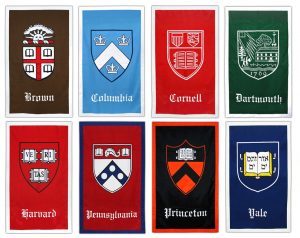
Ivy League Rankings 2024

10 Humanities Programs for High School Students

Where is Georgia Tech located?

How to Qualify for National Merit Semifinalist 2025
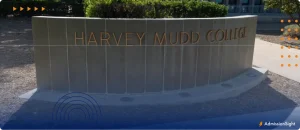
Where Is Harvey Mudd Located?

Where is the University of Virginia located?

Where is Wake Forest located?

Where is the University of Michigan located?

How to Update Caltech After Submitting Your Application

How to Update Yale After Submitting Your Application

What Are the Score Choice Policies at Top 50 Universities?
How to update mit after submitting your application.
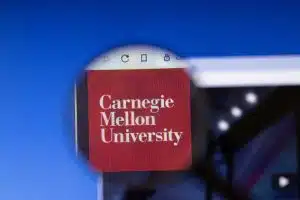
Where is Carnegie Mellon University located?

How to Apply to LaunchX

How to Update UPenn After Submitting Your Application

Where is Georgetown University located?
Leave a comment cancel reply.
Your email address will not be published. Required fields are marked *
Save my name, email, and website in this browser for the next time I comment.
Recent Articles

10 Humanities Programs for High...

How to Qualify for National...

Where is the University of...

How to Update Caltech After...

How to Update Yale After...

What Are the Score Choice...
Sign up now to receive insights on how to navigate the college admissions process..

Admissions Counseling
- Academic & Extracurricular Profile Evaluation
Copyright © AdmissionSight 2024
Privacy Policy - Terms and Conditions
- Top Colleges
- Top Courses
- Entrance Exams
- Admission 2024
- Study Abroad
- Study in Canada
- Study in UK
- Study in USA
- Study in Australia
- Study in Germany
- IELTS Material
- Scholarships
- Sarkari Exam
- Visual Stories
- College Compare
- Write a review
- Login/ Register
- Login / Register
Application for Degree Certificate - Format, Sample

Thasleen Mohideen ,
Jul 3, 2024
Share it on:
The application for degree certificate is submitted in case if the candidate requires the certificate before the completion of one year after graduation due to reasons such as pursuing higher education or seeking jobs.
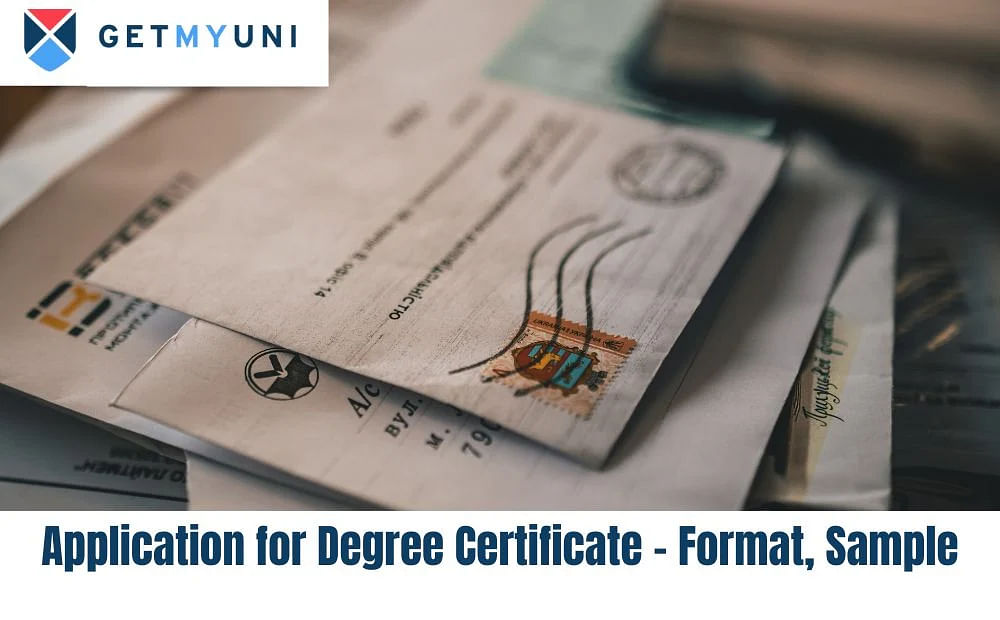
Application for Degree Certificate : The application for a degree certificate is submitted to a college or university in case if the student fails to collect the degree certificate on the mentioned date or requires the certificate before completion of one year of higher education or jobs.
An application for a degree certificate is written similarly to a formal letter with a structure containing the receiver’s address, the subject, the body of the letter and a conclusion.
Table of Contents
Format of Application for Degree Certificate
Application for degree certificate samples: download pdf.
- Application for Degree Certificate to College
- Application for Degree Certificate to University
Tips to Write an Application for Degree Certificate
How to write an application for a degree certificate.
The degree certificate is essentially an award or recognition given to a candidate after completion of a course or a degree from an institution. The certificate is generally required for various purposes such as employment, higher education, etc.
Here are some important points on how to write an application for a degree certificate:
- The candidate must ensure that they know the address of the receiver, be it an institution, college or university address
- Candidates must ensure they haven’t received the degree certificate beforehand in their permanent address as per the college register
- The application for a degree certificate must be in a sealed envelope with a proper format and address
- The letter must have all the necessary information required to send the degree certificate, including the candidate's register number, batch number, department, name and contact details.
Also Read : Informal Letter Format, Topics, Sample
Candidates can follow a formal letter-writing format for the application for a degree certificate to the college or university. Given below is the basic format of application for degree certificate letter students can follow:
Student Name,
Contact Details
The Principal/ The Head of Examination,
Name of the College,
College Full Address
Subject: Request for Degree Certificate
Salutation,
Body of the Letter
Name and Signature of the Student
Department:
Registration Number
Also Check : What is a Letter of Enrollment (LoE)?
Students can download the sample application letter for the degree certificate PDF using the links given below:
| Application for Degree Certificate Format | Download Links |
| Application for Degree Certificate Sample 1 | |
| Application for Degree Certificate Sample 2 | |
| Application for Degree Certificate Sample 3 |
Also Read : Authorization Letter Format: Download Samples, Writing Tips
Samples of Writing an Application for Degree Certificate
Candidates can write the application for a degree certificate using formal letter writing techniques that include the subject, body of the letter and a conclusion. Students can refer to the sample application for degree certificate given below for various scenarios such as higher education and employment to write their application letter:
Sample 1 - Application for Degree Certificate to College
13, Ram Nagar, Bangalore,
The Principal,
MMC College,
Chennai, TamilNadu
Subject : Requesting my Degree Certificate
Respected Sir/ Madam,
I am Manoj, a student of your esteemed University from the Department of Commerce. I have completed my undergraduate degree in Commerce in the year 2023. I request you to issue my degree certificate as I am looking forward to pursuing a postgraduate degree in Commerce from a reputed university.
As a part of the admission process, I am required to submit my degree certificate for document verification. I understand that the Degree certificate is usually issued after a year, but I require it beforehand as the admissions are ongoing for the current year. Kindly do the needful considering my situation.
I shall be highly obliged for your kind gesture.
Yours faithfully,
Manoj Kumar
Reg No. 987654
Department of Commerce
Contact – 1234567890
Mail- [email protected]
Sample 2 - Application for Degree Certificate to University
15, Shenoy Nagar, Hyderabad,
The Head of Examination Department
Anna University,
With due respect, I, Nikila from the Biomedical Engineering Department. I would like to request my degree certificate as I was not able to attend the convocation ceremony due to some personal reasons. Now, that I am looking forward to starting my career, I would require my degree to validate my educational qualifications. I will be able to collect it in person as I will be travelling to Chennai very soon. Please do the needful.
Reg No. 98768
Department of Biomedical Engineering
Contact – 1234512345
Mail- [email protected]
Read More : Letter to Principal: Format, Samples and Guidelines
Listed below are some of the important tips for writing an application for a degree certificate:
- Candidates must ensure that the letter is addressed to the right person such as the principal, head of the department, head of examination, etc.
- Must mention the necessary details without fail including the name, registration number, batch number, department, etc to easily access the records for the certificate
- Mention the date on which you require the degree certificate and the exact reason for which the candidate requires the letter.
POST YOUR COMMENT
Related articles.
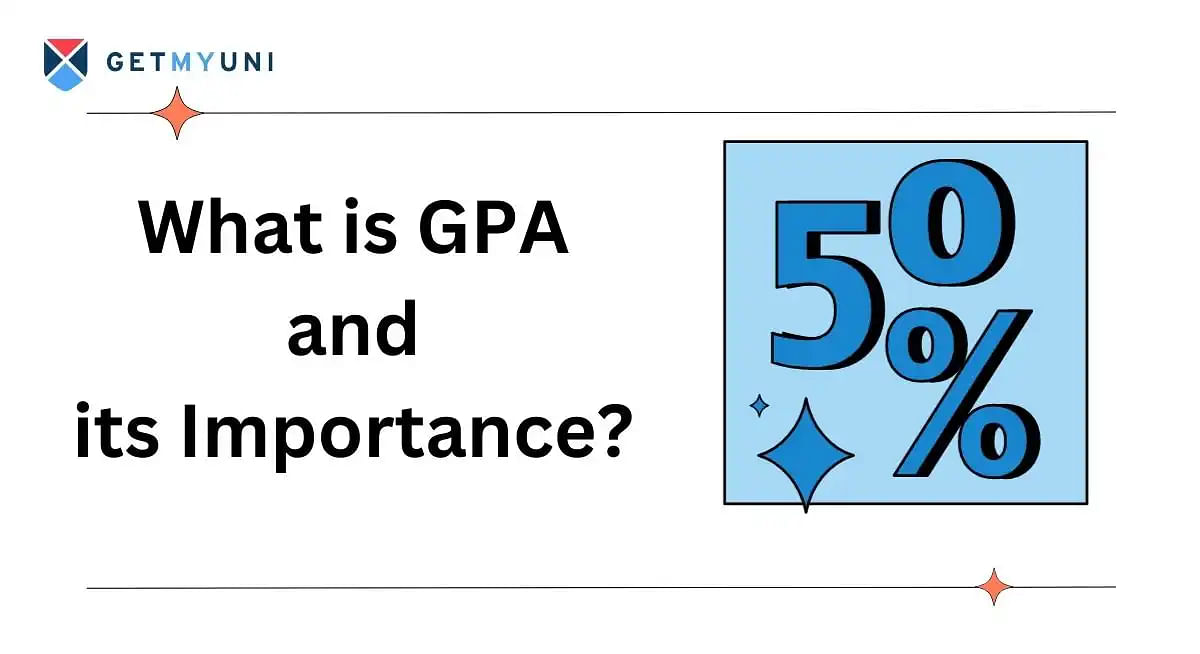
What is GPA ? How to Calculate & Improve Your Academic Performance?
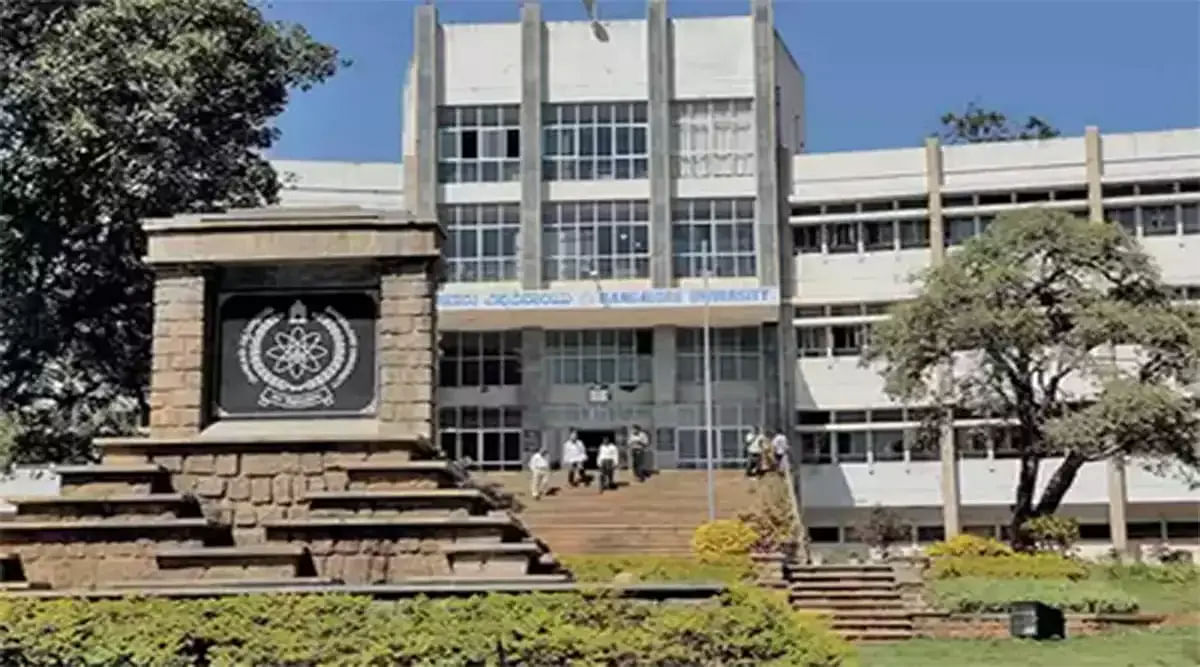
Top Autonomous Colleges in Bangalore 2024: Rankings, Fees, Placements

VKSU UG Spot Admission 2024: Eligibility, Dates, Process
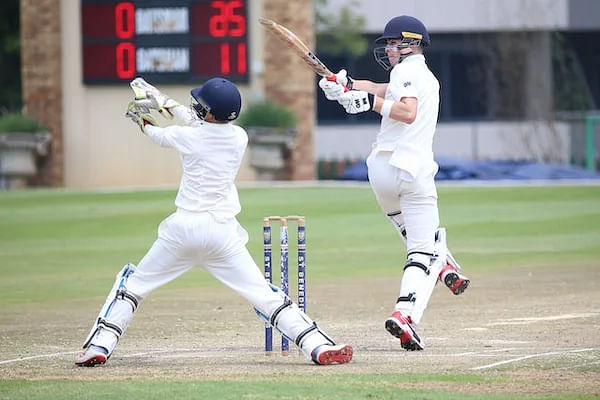
MS Dhoni Cricket Academy: Admission, Fee, Age Limit
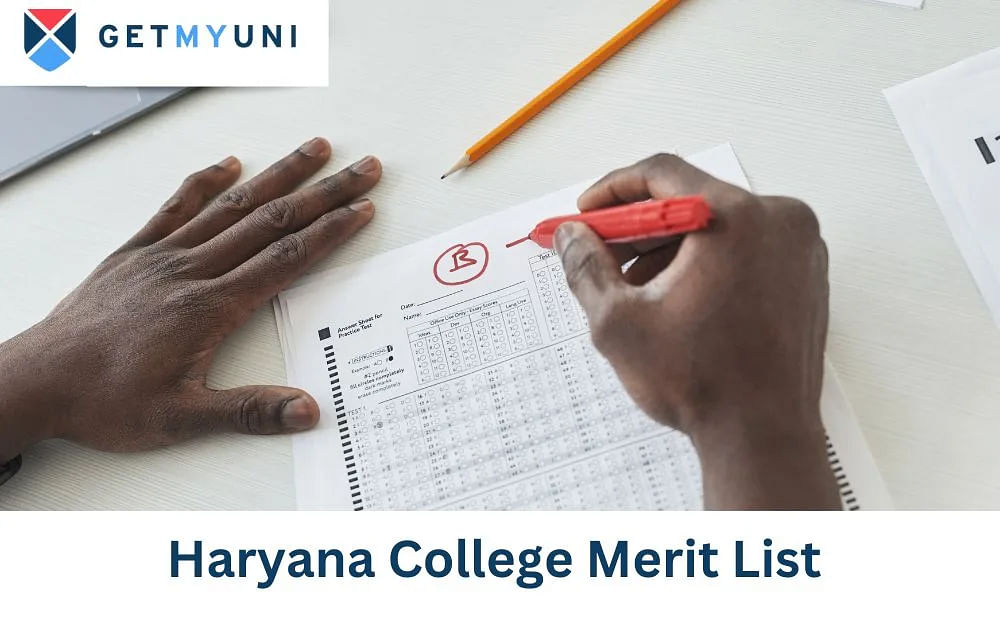
Haryana College Merit List 2024: Download DHE Admission Merit List

Apology Letter Format: 6 Samples, Writing Tips

Get Free Scholarship worth 25000 INR


- Schools & Colleges
- Undergraduate Programs
- Graduate Programs
- Dual-Degree Programs
- Online Graduate Programs
- Professional Development & Continuing Education
- Academic Support
- Research & Scholarship
- Undergraduate
- Admitted Students Next Steps
- International Students
- Financial Aid & Cost
- Four-Year Guarantee
- Community Involvement Program
- Our Campuses
- Student Outcomes
- Community Impact
- Diversity, Equity and Inclusion
- Sustainability
- President Callahan
- University Leadership
- History & Mission
- Pacific In the News
- Pacific Newsroom
- Activities & Programs
- Housing & Dining
- Student Services
- Career Services
- Safety & Wellness
Admission Letter of Recommendation

If your high school counselor or teacher would like to submit a recommendation, please have them submit a paper recommendation on your school's letterhead to the address below. Your full name must be clearly presented to ensure that your letter gets attached to your application. They can address any topics they feel will enhance our evaluation of your application for admission.
University of the Pacific Office of Admission 3601 Pacific Ave. Stockton, CA 95211
You also can feel free to request a letter from a mentor, employer, community service project leader or other non-family member who can speak to your leadership, character and community involvement.

How Ivy League Hopefuls Can Build Their Network This Summer
- Share to Facebook
- Share to Twitter
- Share to Linkedin
Brown University
For high school students dreaming of attending Ivy League institutions, summer is not just a break from academics—it is an invaluable opportunity to build a network that can help them on the path toward their collegiate goals. Networking can open doors to mentorship, internships, and firsthand advice from those who have successfully navigated the Ivy League admissions process. While the age of the internet has opened new avenues for connection by allowing students to meet peers, professionals, and subject matter experts that they would not otherwise encounter, making the most of such networking opportunities—whether online or in person—requires strategy and skill.
For high school students seeking to level up their networking skills this summer, here are some key tips to keep in mind:
1. Start Locally
While the internet offers innumerable outlets for students to meet others in their field of interest and enrich their skillset, networking should always start in one’s own community. Before setting their sights on exchanging emails with Elon Musk, students should identify respected professionals, academics, or community leaders in their own community who may provide valuable insights or connections. Students can start by reaching out to friends and family members who know others working in their field of interest, attend the colleges they are applying to, or offer internships or volunteer opportunities for high school students in their area.
2. Master Email Etiquette
When reaching out to community members they do not know, students should send a brief and professional email explaining their goals and specifically stating how the recipient’s expertise might benefit their goals. They should begin with a professional greeting, using the person’s official title before introducing themself (this should include their school, grade and relevant accomplishments or interests). Students can then ask specific questions, set up a time to get coffee, or request to chat via Zoom or over the phone.
3. Maintain a Professional Online Presence
Alternatively, students can reach out to community leaders via networking sites such as LinkedIn ; social media platforms like Twitter can also be powerful tools for networking if used wisely. Creating a professional online presence can help students connect with key individuals and stay informed about new opportunities. While students may have personal Instagram or Twitter accounts on which they share photos or personal thoughts, they should be sure to engage with professionals and academics in their field from an account used solely for professional purposes. Students can follow Ivy League admissions officers and faculty members, and engage with their posts by commenting thoughtfully and sharing content that resonates with them.
4. Make Long-Term Impact
When building a network, students should keep in mind that quality is often more important than quantity. Making connections with a breadth of peers and professionals in your field of interest can be helpful, but you will likely find that the most meaningful and beneficial relationships are those cultivated over time. For instance, if you are involved in a volunteer organization or internship program, committing to the activity over a couple of years during your high school career will allow you to grow in your role, demonstrate your commitment to the cause, and develop new skills over time. Likewise, your peers, supervisors, and mentors will be able to craft meaningful letters of recommendation, offer advice as you engage in the college search, or connect you with others who can help you along the way.
5. Make a Strategic Plan for Requesting Letters of Recommendations
Finally, students should note that a strong network is made up of people with diverse expertise—not every person in their network will be able to offer insightful college advice or write a strong letter of recommendation. Because of this, students should be intentional and strategic about how they leverage their network, using some connections to secure internships or jobs, others to make connections in their field of interest, and others to craft compelling letters of recommendation. The best recommenders will be those who have interacted with the student in a meaningful way (whether as a supervisor, professional or academic mentor) and who can attest to their unique strengths in the admissions process.
Building a network is a proactive and ongoing process. By taking advantage of summer opportunities, you can create a support system that provides guidance, inspiration, and practical assistance on your path to the Ivy League. The relationships you build now can significantly impact your future academic and professional success.

- Editorial Standards
- Reprints & Permissions
Simon Fraser University Engaging the World
Department of linguistics.
- A-Z directory

Support the Department of Linguistics

slp feature
Slp admission profile: sarah lee.
Sarah Lee of SFU Linguistics has accepted an offer of admission to the MSc in Speech-Language Pathology program at UBC. Sarah achieved admission to the program upon her first attempt at applying. When Sarah began her undergraduate degree at SFU, she already had plans for a career in SLP as her goal.
"I paid attention to the Linguistics Student Union newsletters, which included research and volunteer opportunities, as well as tips for course planning and guides for SLP Master’s programs applications."
Sarah wanted to help people in her community who experience communication difficulties. Right from the start of her undergraduate degree, Sarah was focused on the courses and extracurriculars that would help her achieve this specific career ambition.
Please share your general advice for gaining admission to an SLP program.
The process of applying to SLP graduate programs is very stressful. Throughout my undergraduate degree, I was not shy about reaching out to professors, advisors, and classmates to ask for advice on strengthening my grades, managing stress, and becoming involved in research. By creating connections and putting myself out there, I used multiple perspectives to guide me through my journey to applying to master’s programs.
I also contacted the L inguistics Undergraduate A dvisor , Rita Parmar, to seek advice on gaining admittance. Rita helped me by recommending graduate program course requirements to make course planning easier, as not all required courses are offered each semester. She also placed high value on creating a well-rounded application. This involves maintaining a high GPA while volunteering in the field and research settings. I would meet with Rita once a semester to discuss my progress and areas I could strengthen. I kept my application in mind throughout my four years at SFU and tailored my studies and extracurricular work to my passion and dream of becoming an SLP.
It is also important to create academic connections. I recommend attending Faculty office hours to get extra help and to familiarize yourself with professors. By attending office hours, I made connections and gained insight into course materials, which was instrumental in my success in classes. I attended office hours to review tests, papers, and projects, ask questions, and discuss research opportunities. Getting to know my professors helped me when I needed to ask for academic and research-based references for my application. Since I took the time to show an interest in academics and a dedication to improving my performance in class, professors got to know me as a student and as a person.
Lastly, I tried to utilize the resources and information services provided by SFU. Many of these services are overlooked; however, gaining multiple perspectives on schoolwork and pieces of my application allowed me to think more critically. When writing papers and my letter of intent, I contacted the Linguistics Department Writing Cent re to receive feedback on my writing. I also booked appointments with SFU’s Career and Volunteer Services to streamline my CV and make it stand out. I also paid attention to the Linguistics Student Union newsletters, which included research and volunteer opportunities, as well as tips for course planning and guides for SLP Master’s programs applications. Overall, I utilized the resources SFU provided, which solidified and organized my application.
What feedback did you receive regarding what made your application stand out?
I shared my application with the Linguistics Student Advisor, Academic referees, the SLP practitioner I was volunteering under, and friends and family. My strong GPA, diverse extracurriculars, and personal letter of intent made my application stand out. I volunteered in many different settings for years, which showed my genuine commitment to the field instead of just checking off boxes. My letter of intent was focused on why I chose to pursue SLP, why I would be a good fit for the program, and my areas of interest within SLP. I highlighted personal qualities and experiences that drove me to want to become an SLP. Since the selection committee wouldn’t get to actually meet me, I tried to show who I am in my letter of intent, aside from academics.
Which Linguistics courses had the most impact on your successful application?
First Language Acquisition (LING 350) Phonology (LING 321) Psychology of Language ( L ING 315)
Was there a Linguistics instructor who was instrumental to your success?
John Alderete was the most impactful professor. I took Phonology (LING 321) and Morphology ( L ING 323) with John. Having never learnt phonology and morphology, I loved solving the linguistic problems in class. Taking these courses with John made me reconsider how I viewed languages. Although these courses were challenging, discussing issues during office hours and with classmates pushed me to consider different perspectives on language structure. John is a highly passionate and knowledgeable professor; taking his classes and discussing material with him motivated me to involve myself in my area of interest as much as he does.
Did you earn any awards or recognitions during your undergraduate education?
During my undergrad, I maintained my Entrance Scholarship with Distinction throughout all four years. I received Dean’s Honour roll from 2021–2024. I was also nominated for the Yvonne Becker Essay Prize in 2023.
Tell us more about your volunteer work and its role in your SLP admission.
Once COVID restrictions were lifted, I volunteered for three years straight during my undergrad to create a well-rounded application. I volunteered at a Coquitlam clinic called Empowering Steps Therapy, under an SLP working with neurodiverse children. I also lead a stroke recovery group for seniors with aphasia through March of Dimes Canada. At SFU, I volunteered in research projects specializing in Autism. I was a member of the Autism in Education Lab for the Sound Sensitivity Project . Additionally, through the Autism and Developmental Disabilities Lab , I volunteered at many educational camps for teens and children with Autism. By diversifying the populations and settings in which I volunteered, I had the opportunity to experience how speech disorders affect lives and what types of therapies and developments are used to provide support.


IMAGES
VIDEO
COMMENTS
Use a proper salutation. Begin your college application letter with a formal salutation. The standard, in this case, is "Dear". Be sure to avoid informal salutations such as "Hey", "Hi", and "Hello". 💡 Tip: Do your best to personalize your university application letter in every way that you can.
How to Write University Admission Application Letter. Some writing tips to help you craft a better application: Start with your personal information including your full name, address, the date, and the recipient's address. Open the letter with a formal salutation, addressing the admissions committee or specific admission officer, if known.
University Application Letter Example Template. Dear Admissions Committee, I am writing to express my enthusiastic application for the [Program Name] at [University Name]. My interest in [Subject or Field of Study] was sparked by [brief personal anecdote or experience that ignited your passion in the field].
Example. A personal anecdote. "My journey with community service began with a single, small act of kindness…". A career aspiration. "As a budding environmentalist, XYZ University's commitment to sustainability speaks to my deepest convictions.". An academic interest.
1. School Name and Address. You college application letter should follow formal letter formatting guidelines, which include writing the full name of the college or university you are applying to in the upper left hand corner of the letter. Try to be as specific as possible with the address you choose to use. 2.
A successful cover letter for a university application should contain specific elements that demonstrate the applicant's qualifications, achievements, and passion for the program. These elements include: Addressing the letter to the appropriate recipient. Crafting an engaging introduction that captures the reader's attention.
1. Write your name and street address. At the top of your cover letter, write your first and last name. On a separate line include your street address, followed by your city, state and zip code on another line. 2. Include the date. Below your contact information, write the date you plan on sending the cover letter.
The motivation letter is an excellent medium for speaking directly to the university committee and making a solid case for getting their thumbs up. That's why you have to put in the extra work and be sure to: Write simply, concisely, and from your heart. Exhibit all your strengths and skills related to your desired studies.
Example Introduction: "I am thrilled to submit my application for the [Program Name] at [College Name]. The innovative curriculum and the college's commitment to [specific aspect, like 'community service' or 'research excellence'] resonate deeply with my academic interests and personal values.".
Follow these tips to write an impactful essay that can work in your favor. 1. Start Early. Few people write well under pressure. Try to complete your first draft a few weeks before you have to turn it in. Many advisers recommend starting as early as the summer before your senior year in high school.
Example 3: Dear Admissions Committee, I am applying to [Name of University] to pursue a degree in [Field of Study]. I have a genuine interest in [Field of Study] and am looking forward to gaining knowledge and hands-on experience through the [Name of Program] program.
Edit the content and structure of your letter. Start by reading the letter aloud and having another person do the same. Make sure your letter addresses the topic or questions and then spell and grammar check your letter. Write the final draft and complete another spell and grammar check before you submit it. According to Indiana University, a ...
The motivation letter usually refers to an application letter you would write when applying for a university. ... You might also find motivation letters for university applications being called personal statement letters. But a motivation letter is not the same as a personal statement. The difference is in how long the letter is supposed to be ...
Write down your personal information. Identify yourself at the beginning of your admissions letter. This means writing down your full name and address. Use the conventionally accepted address format, whereby you indicate the street address, state, city, and zip code. This way, the admissions officers reading your letter will have an idea of who ...
The header usually includes your name, occupation, address, phone number and email . 2. Greeting. The greeting line of a university application letter, also known as a salutation, is where you say your greetings. In a university application letter, don't go too inventive. A simple "Hey" is obviously ineffective.
Make sure the first couple sentences of your letter are interesting and engaging. Revise as necessary to capture the attention of the admissions board. First impressions matter a lot when you are competing with other qualified applicants. Next. slowly read every line of your letter paying close attention to grammar, punctuation and capitalization.
Options for Organizing an Admissions Letter. Judge by the clues on the application form and by the nature of the profession or discipline what kind of logical structure you could use to tie your points together into a coherent whole. You may see indications you are expected to demonstrate your personality, or be self-analytical, or enter into ...
Tips for writing an application request letter for admission. Be focussed: Take your cue first from the prompts given in the application form; also research the program widely, looking for hints about its values and identity. What is the main stated question (e.g., why you will be a good researcher or lawyer, what experience you can bring to ...
Use this University cover letter example to finish your application and get hired fast - no frustration, no guesswork. This cover letter example is specifically designed for University positions in 2024. Take advantage of our sample sentences + expert guides to download the perfect cover letter in just minutes. 4.8.
Click on the choices section and enter the universities and courses you've decided to apply to. Once you've added them all, click on the 'confirm choices' button on the bottom left to mark the section as complete. Your application will be linked to your college, so if your referee is one of your teachers they'll enter their reference into ...
How to write an application letter. Follow these steps to compose a compelling application letter: 1. Research the company and job opening. Thoroughly research the company you're applying to and the specifications of the open position. The more you know about the job, the better you can customize your application letter.
No hard numbers. "I worked in a team and provided customer service to elderly residents". 5. Choose engaging words for your application letter. Your letter of application's length should be 250 to 400 words or 3 to 4 paragraphs — long enough to get your point across but short enough that the reader won't lose interest.
Express your gratitude to the official for taking the time to revisit your application. Thank them for considering your appeal and for their continued dedication to the college admissions process. This shows your appreciation for their time and effort and leaves a positive impression of your professionalism and maturity.
How to write a resume for college step by step. Before you begin writing your college resume, we recommend you reflect on all your school experiences and achievements, starting ideally from 9th grade. Many students feel intimidated by describing themselves on a resume, thinking they don't have much to offer. However, this feeling stems from ...
Application for Degree Certificate: The application for a degree certificate is submitted to a college or university in case if the student fails to collect the degree certificate on the mentioned date or requires the certificate before completion of one year of higher education or jobs.. An application for a degree certificate is written similarly to a formal letter with a structure ...
Submit an online application for the graduate degree program. Check the program's application deadline and submit all materials by the date listed. Begin the application process at least a month before the application deadline. Select the academic program of interest carefully.
If your high school counselor or teacher would like to submit a recommendation, please have them submit a paper recommendation on your school's letterhead to the address below. Your full name must be clearly presented to ensure that your letter gets attached to your application. They can address any topics they feel will enhance our evaluation of your application for admission. University of ...
2. Master Email Etiquette. When reaching out to community members they do not know, students should send a brief and professional email explaining their goals and specifically stating how the ...
Absentee ballot application (Vietnamese) You can also request a paper application by: Contacting your county election office directly, Emailing the Department of State, or; Calling the Department at 1-877-VOTESPA. Step 2: Mail your application. Your county election office must RECEIVE your paper application at least one week before the next ...
Many of these services are overlooked; however, gaining multiple perspectives on schoolwork and pieces of my application allowed me to think more critically. When writing papers and my letter of intent, I contacted the Linguistics Department Writing Cent re to receive feedback on my writing.